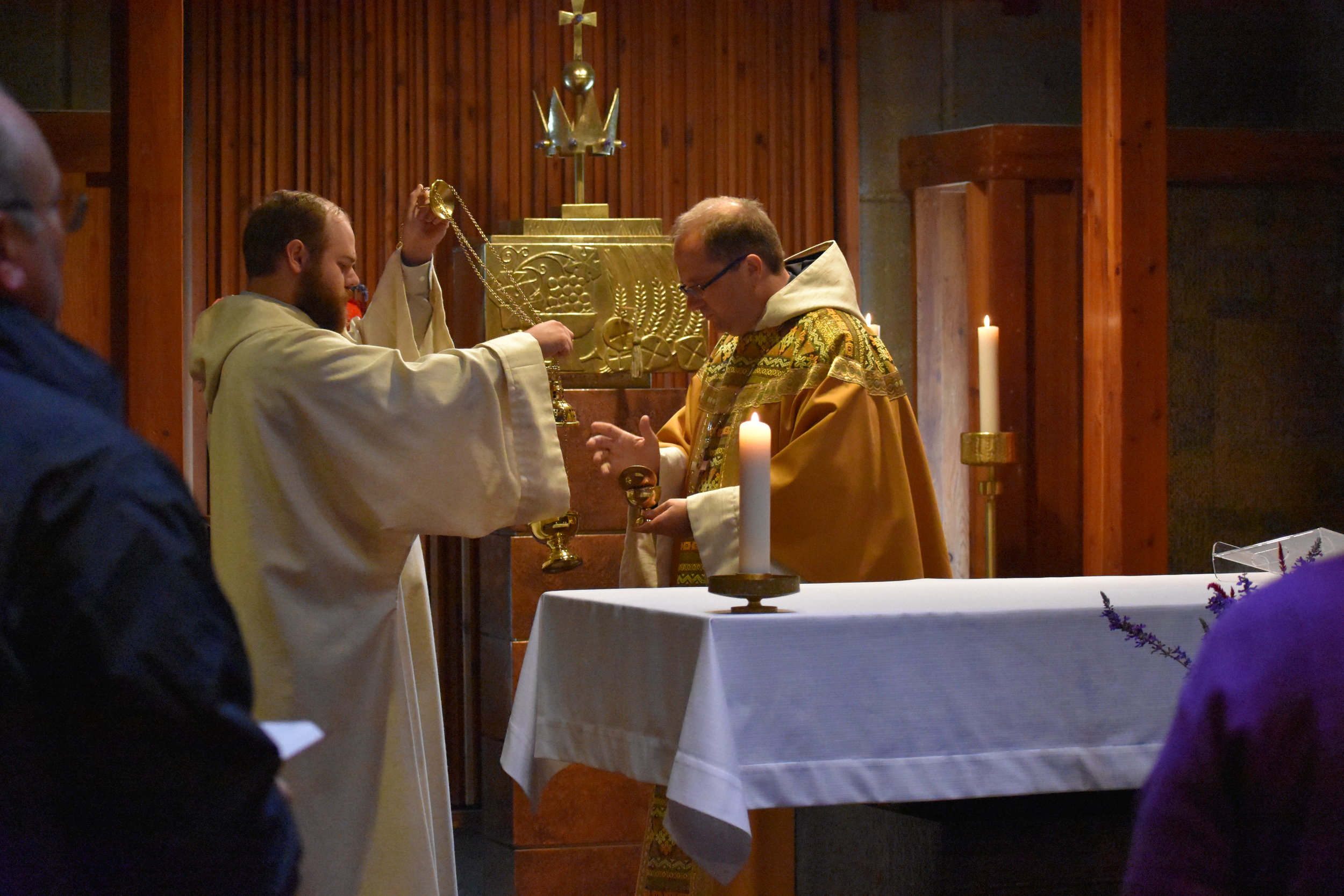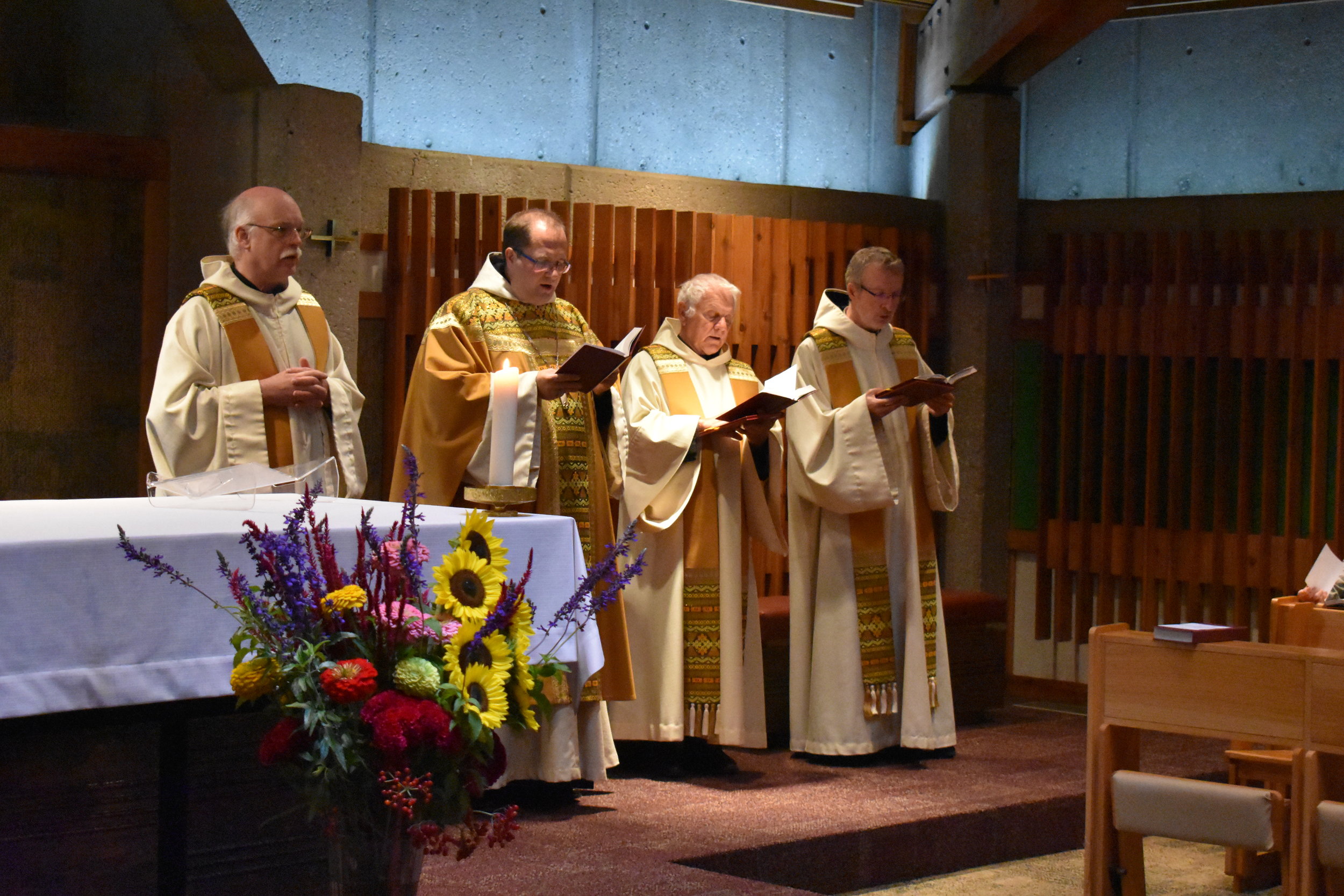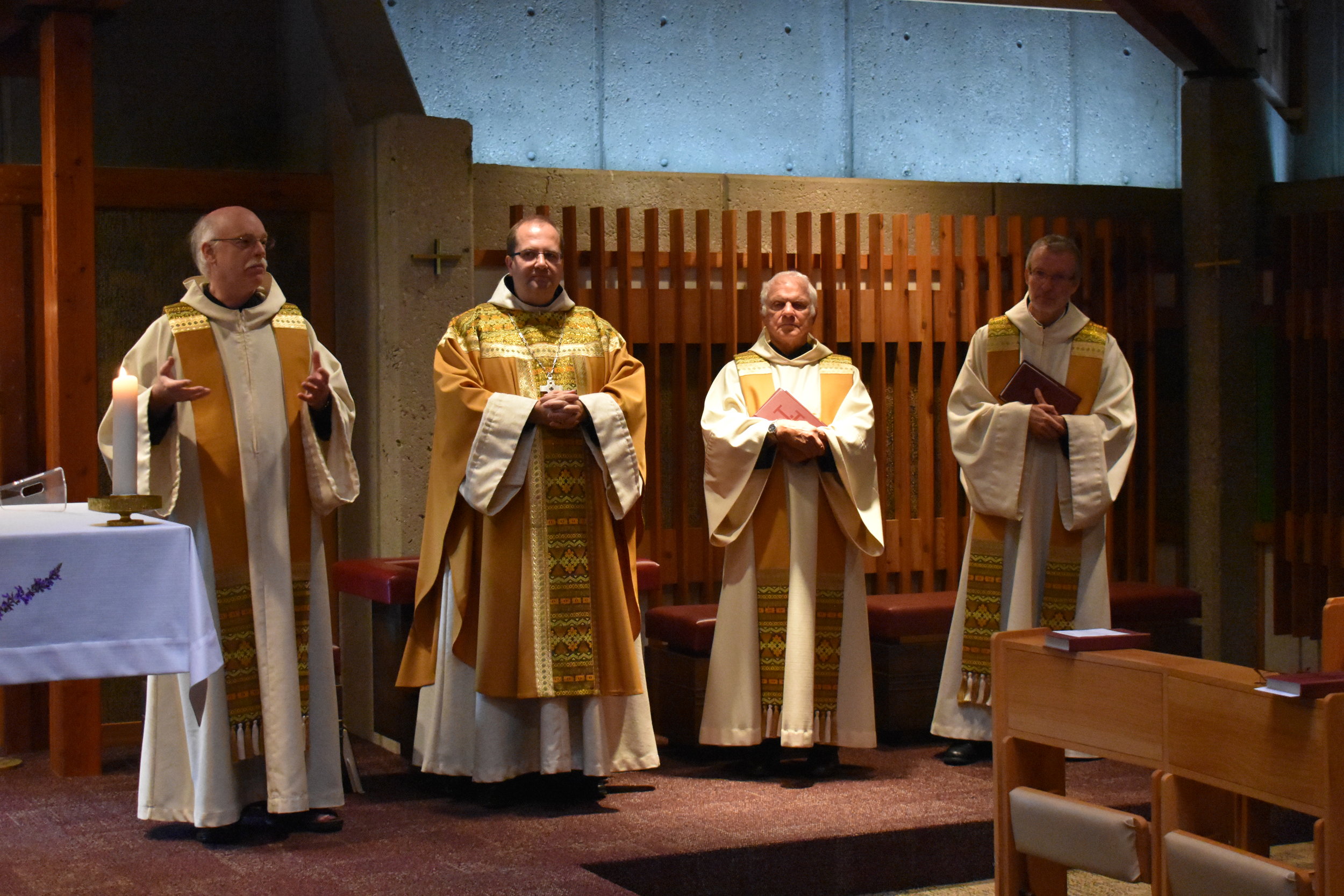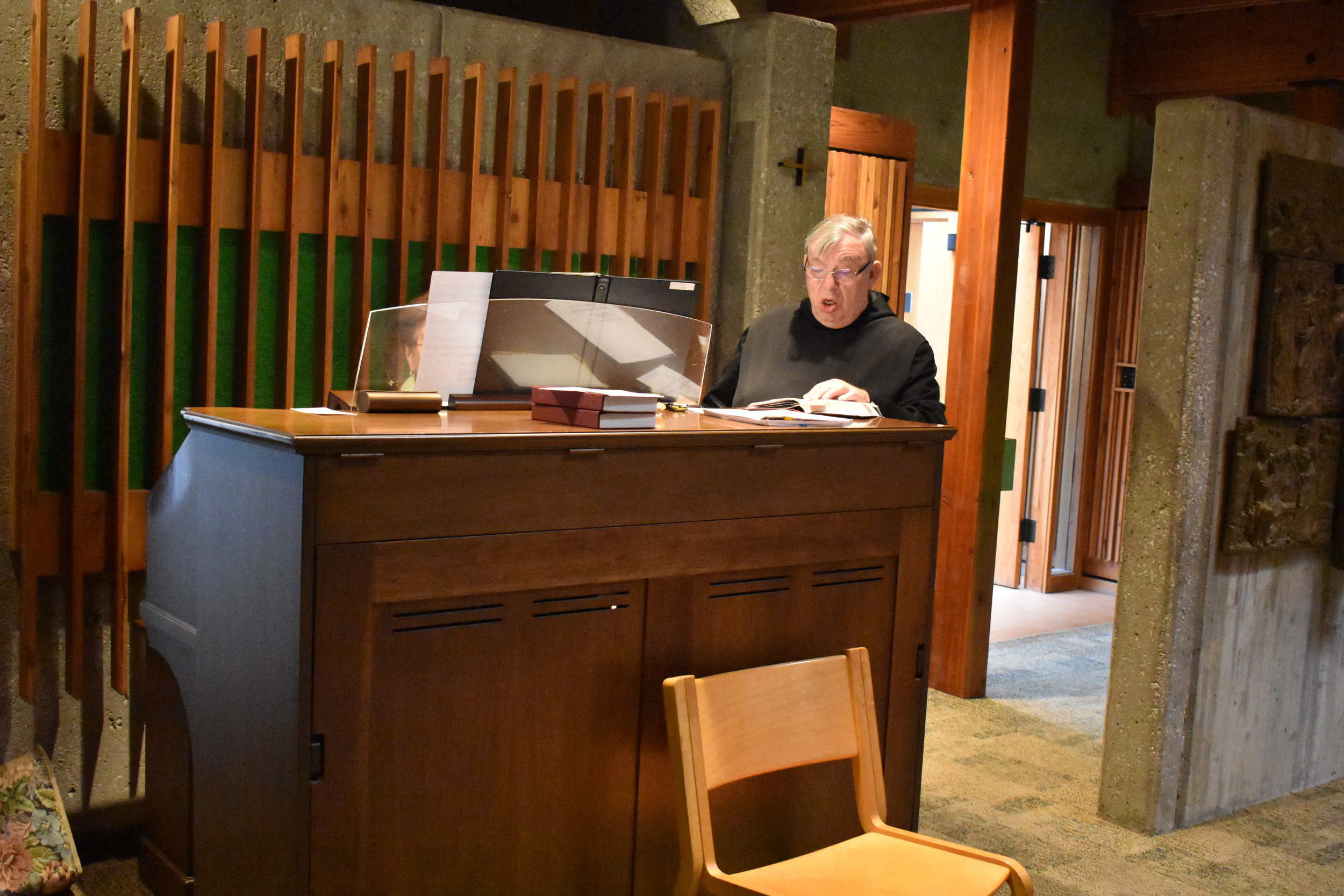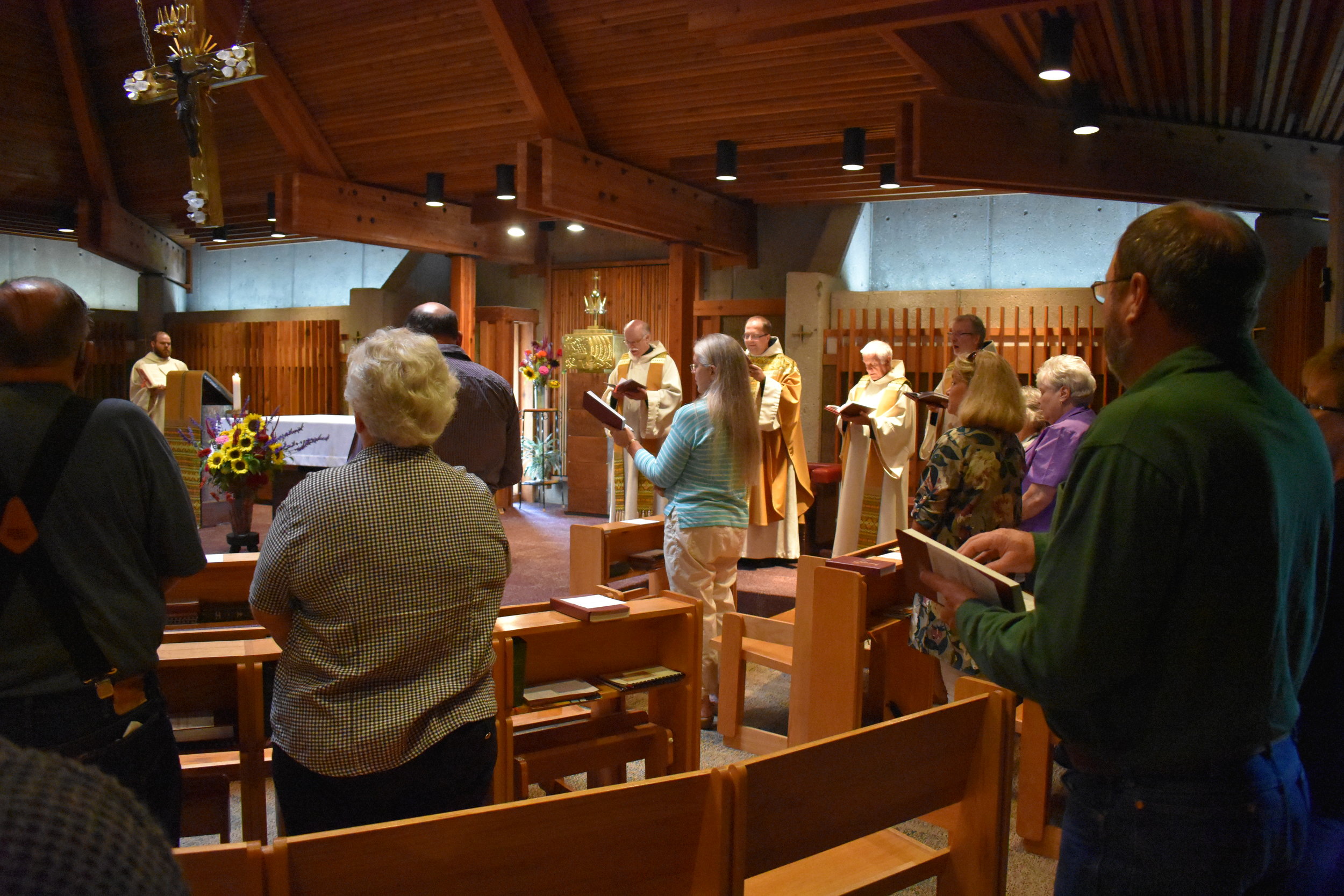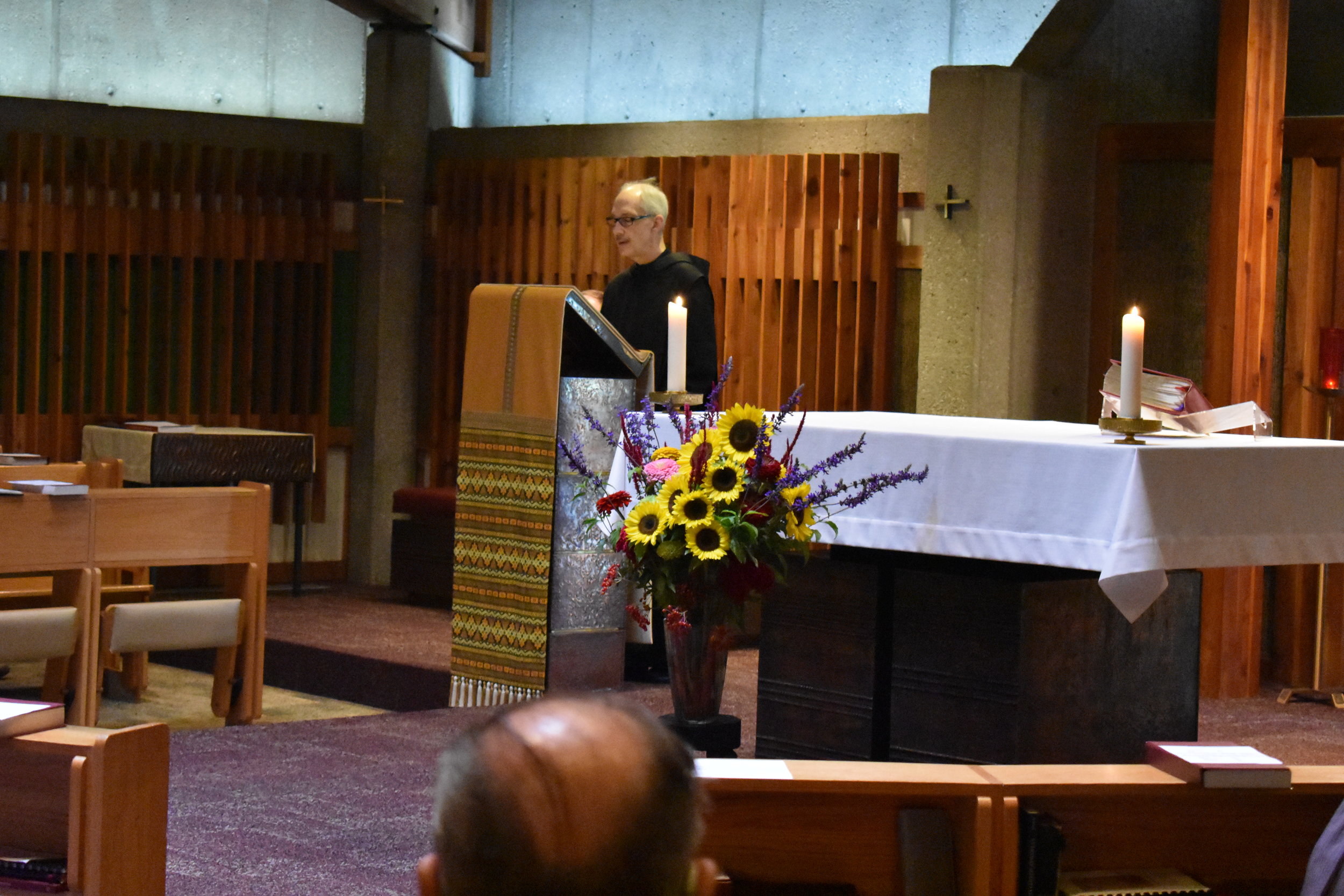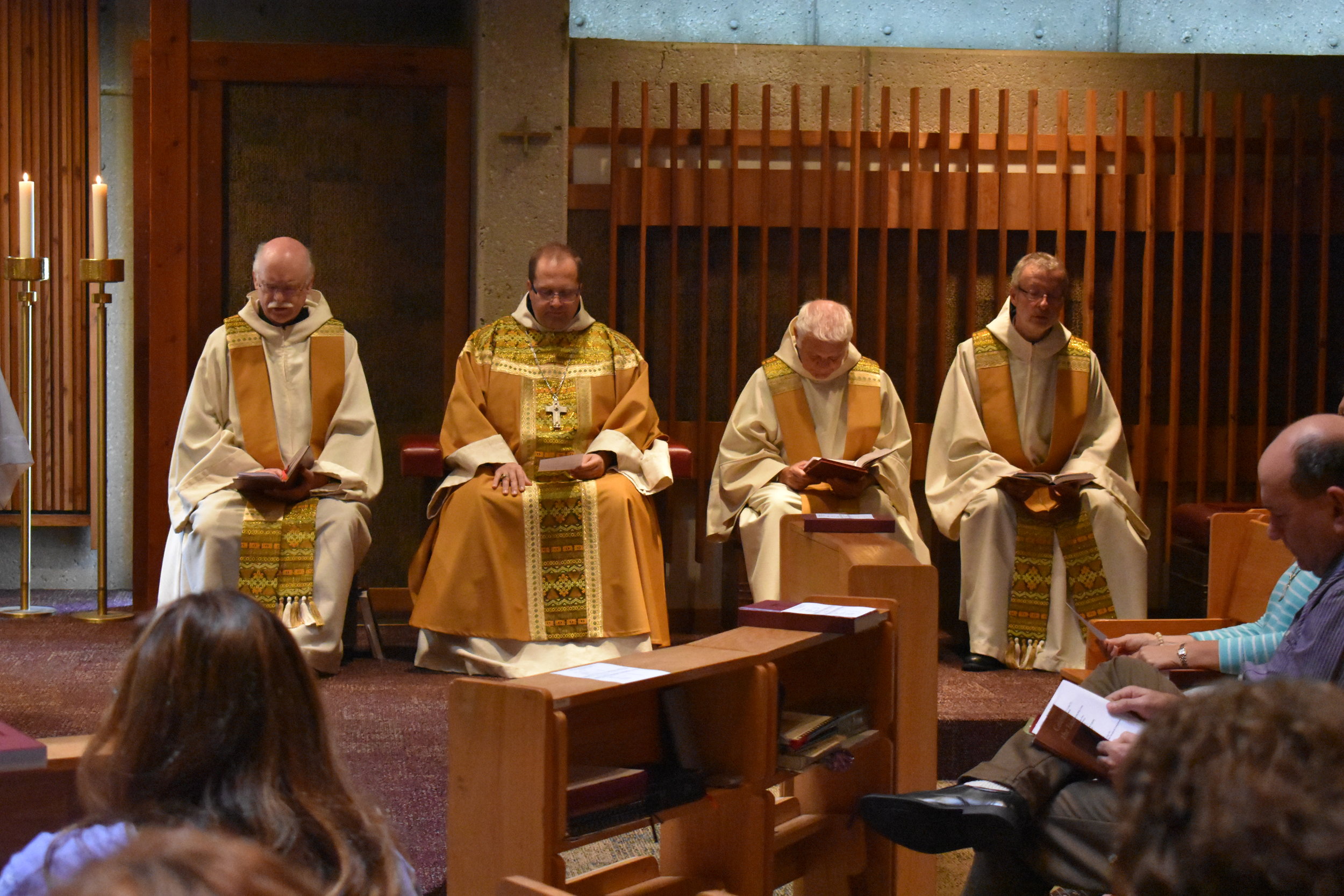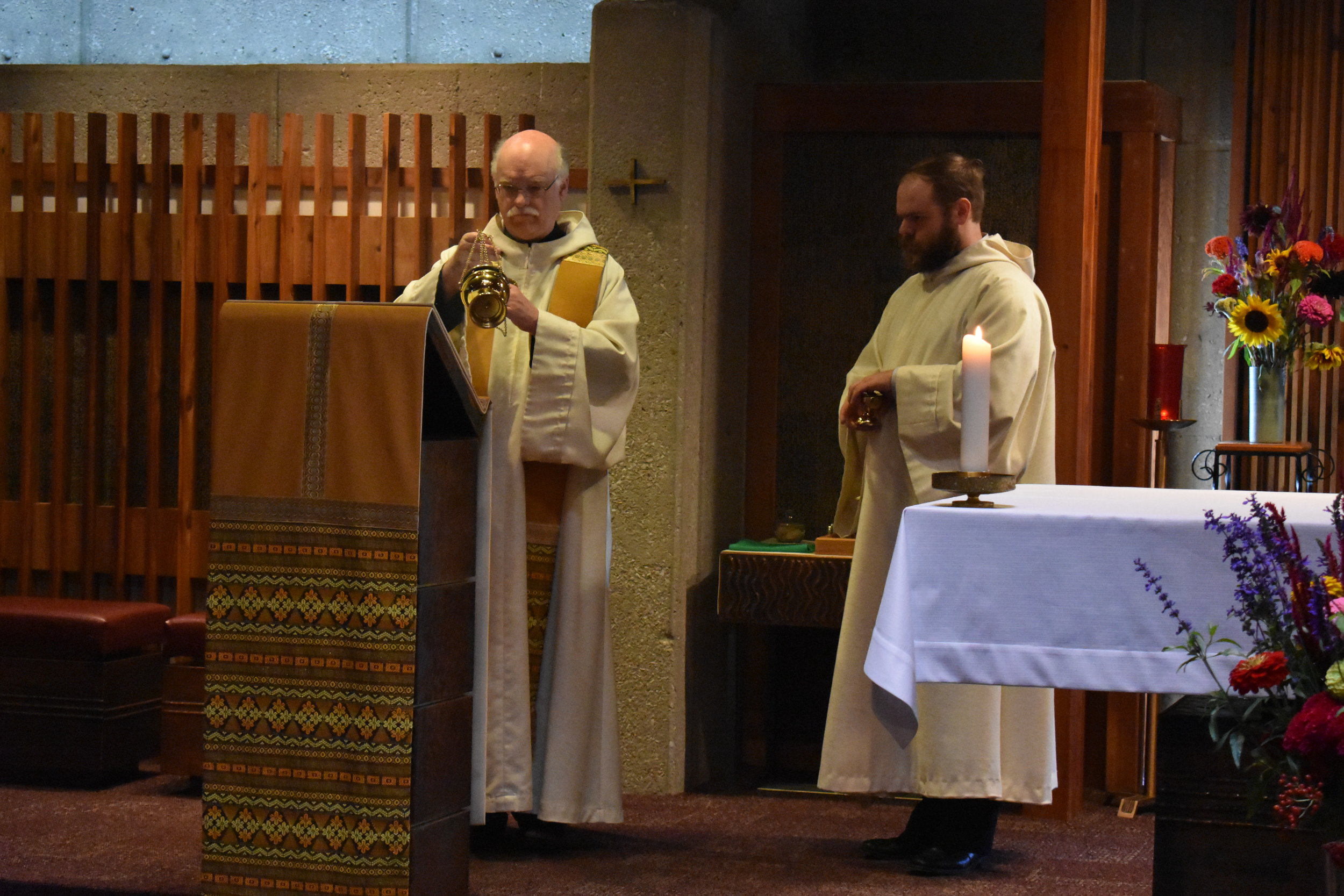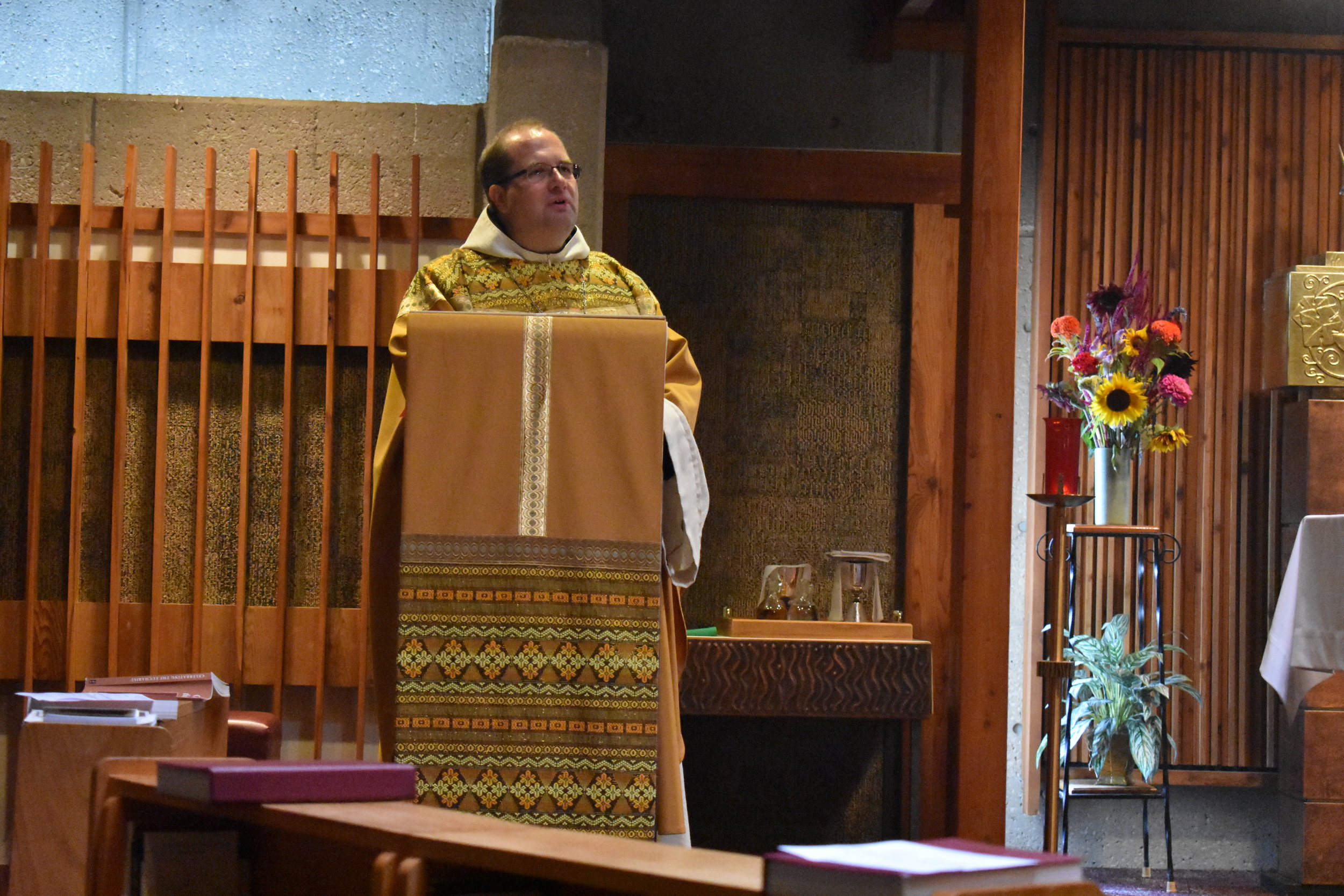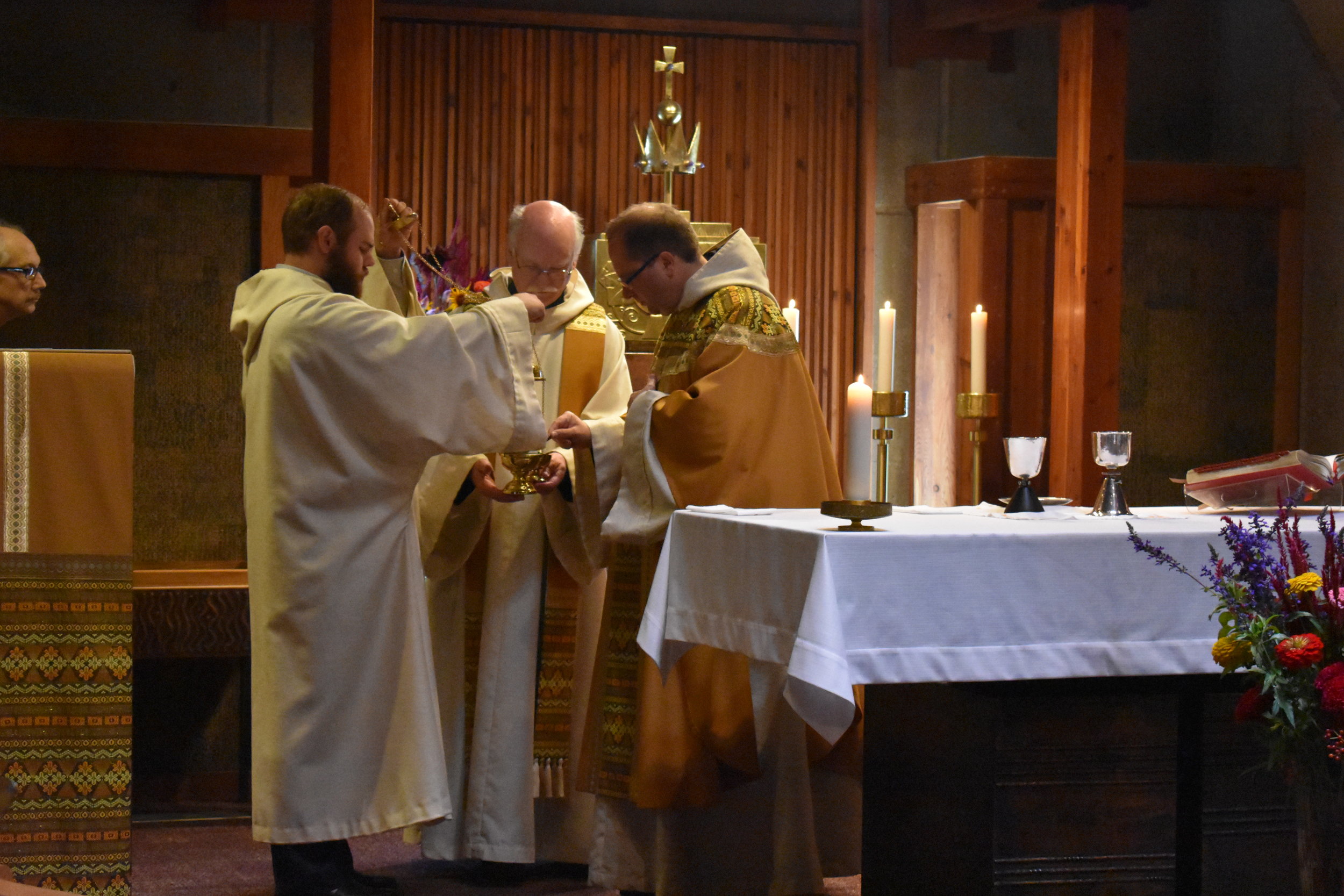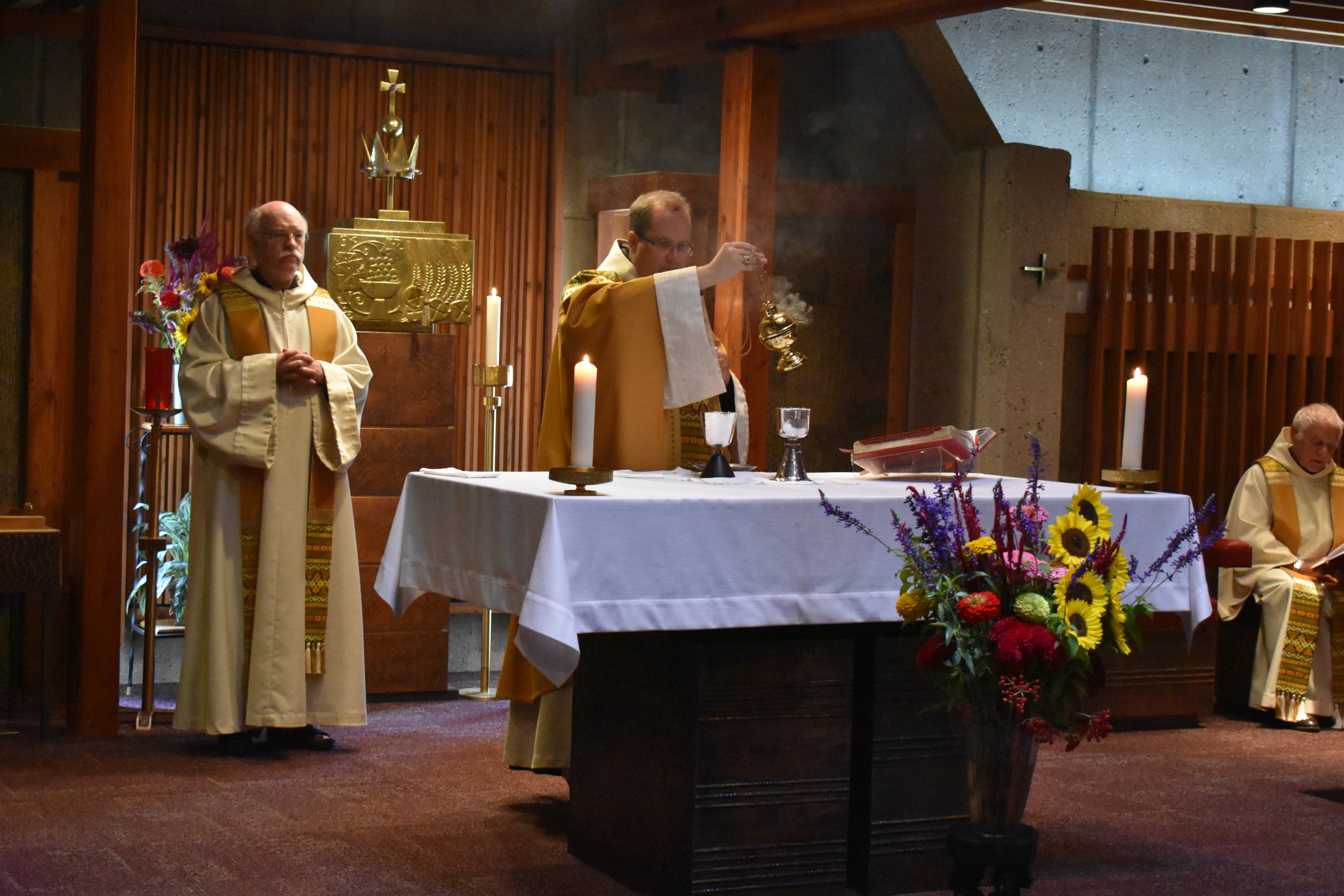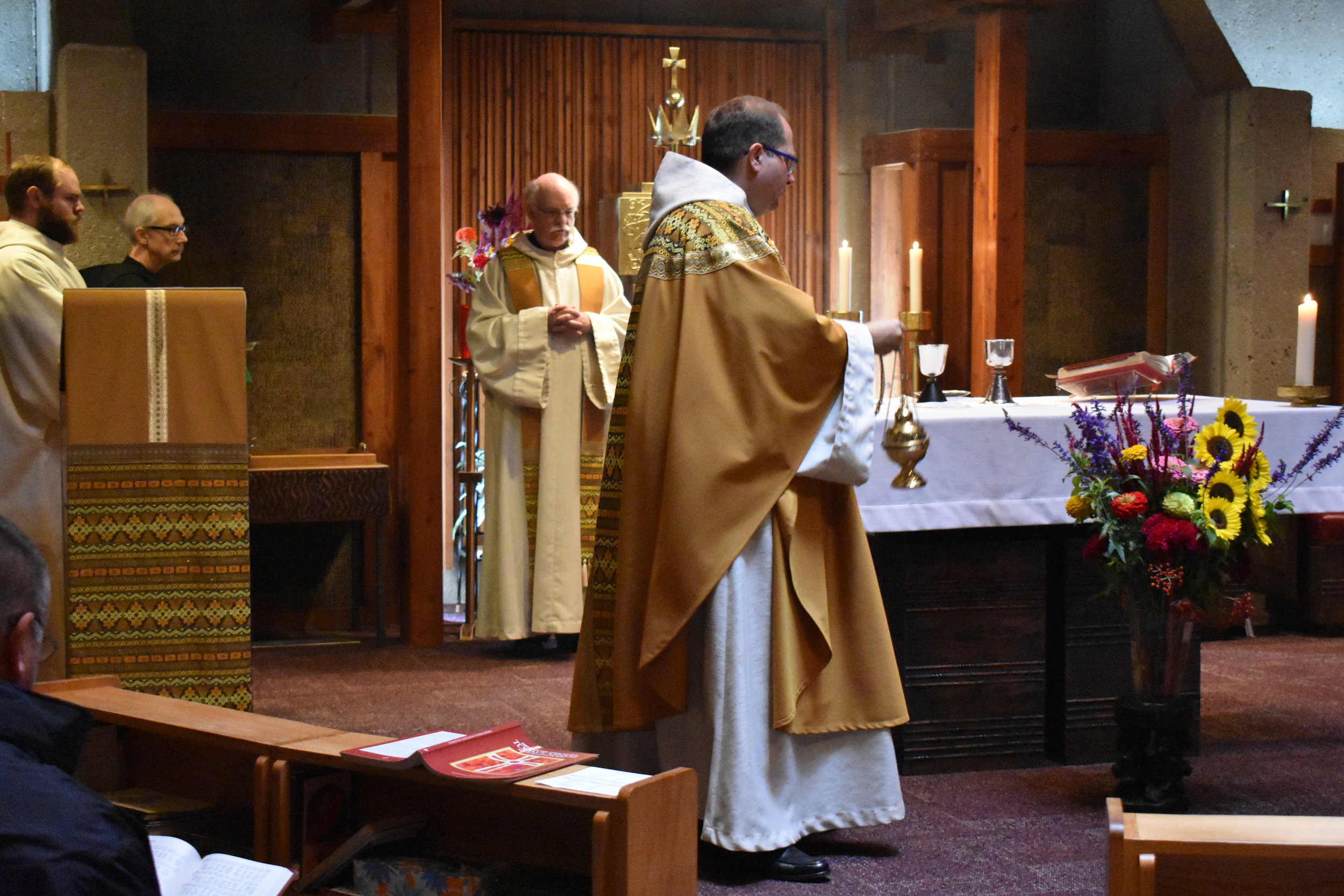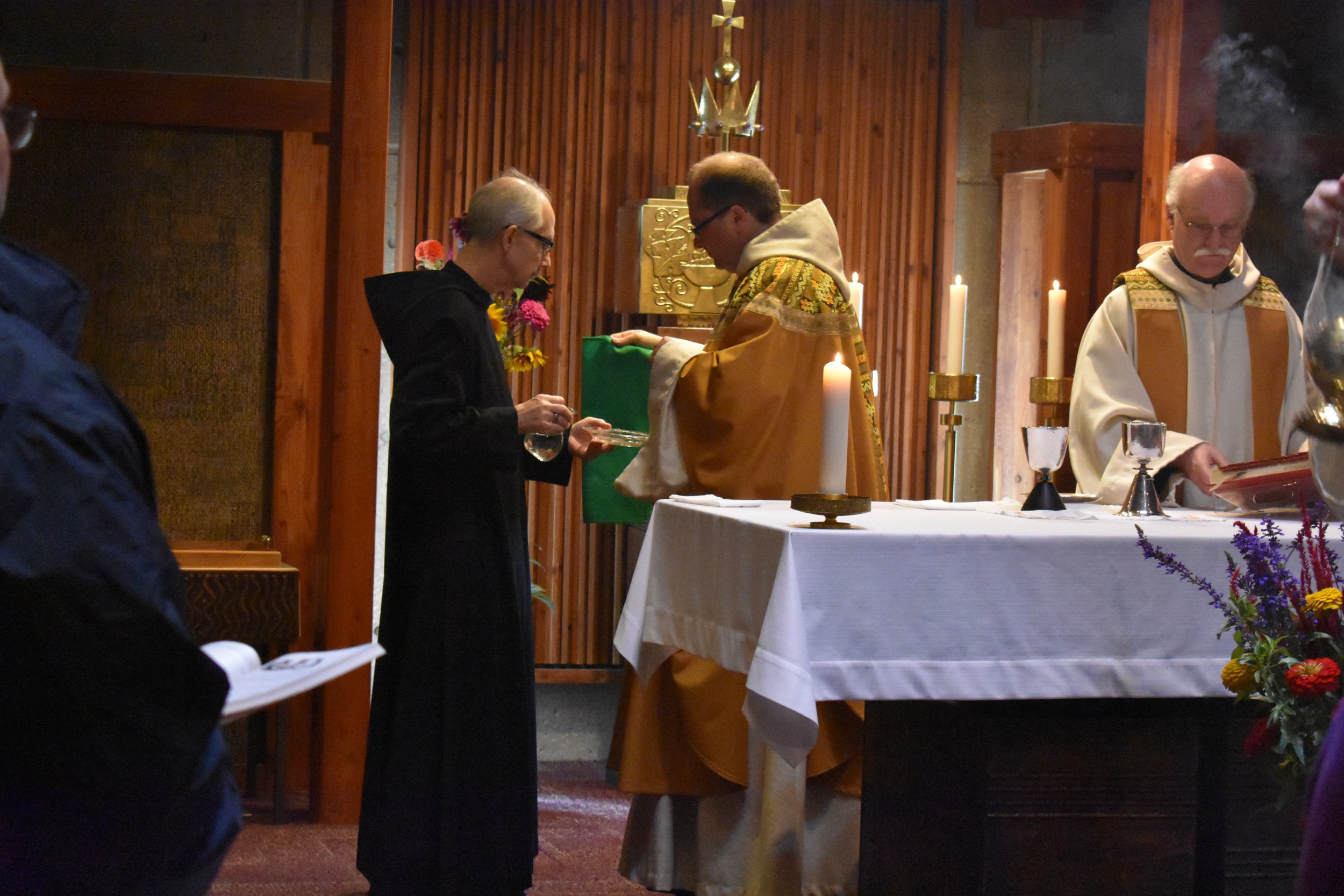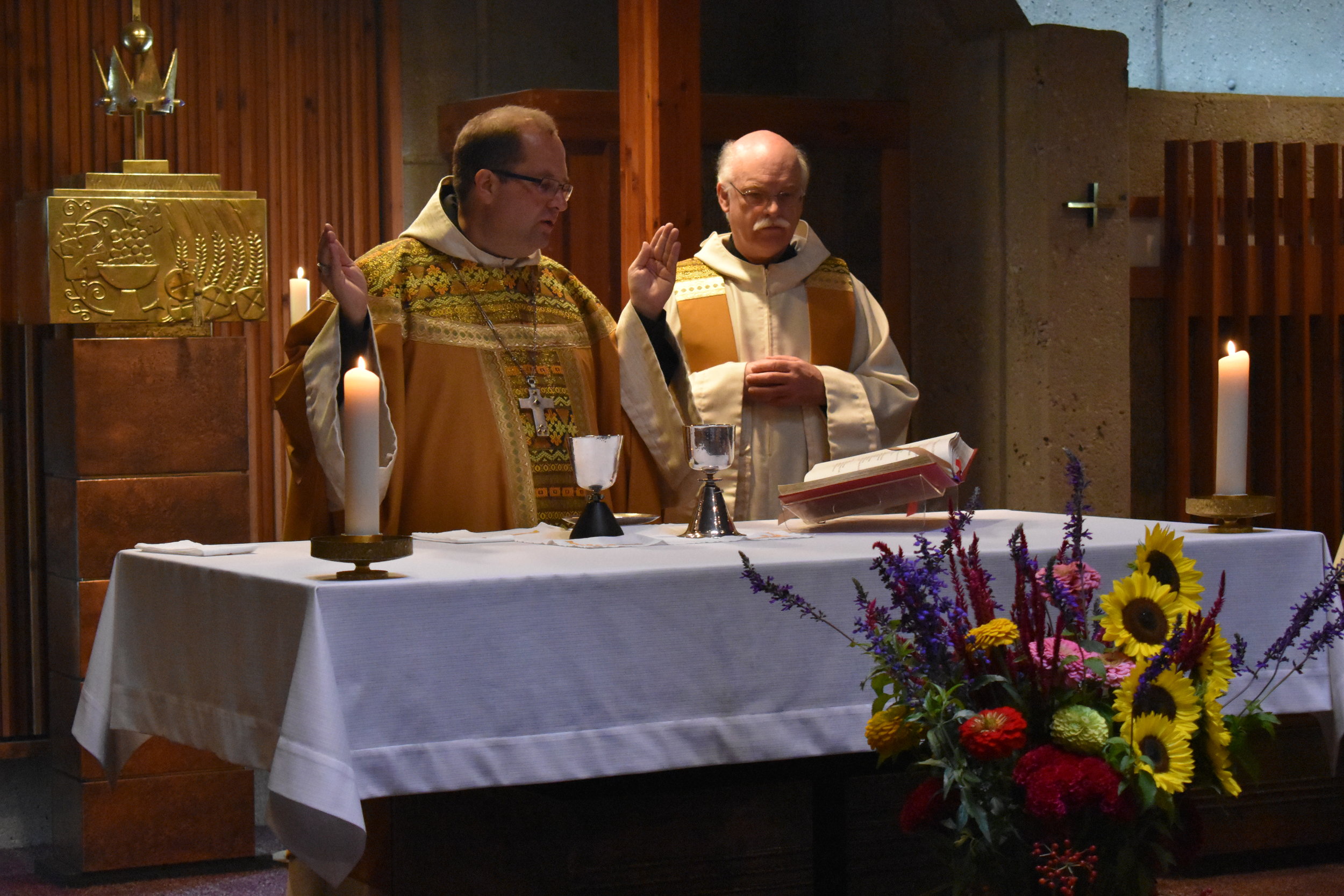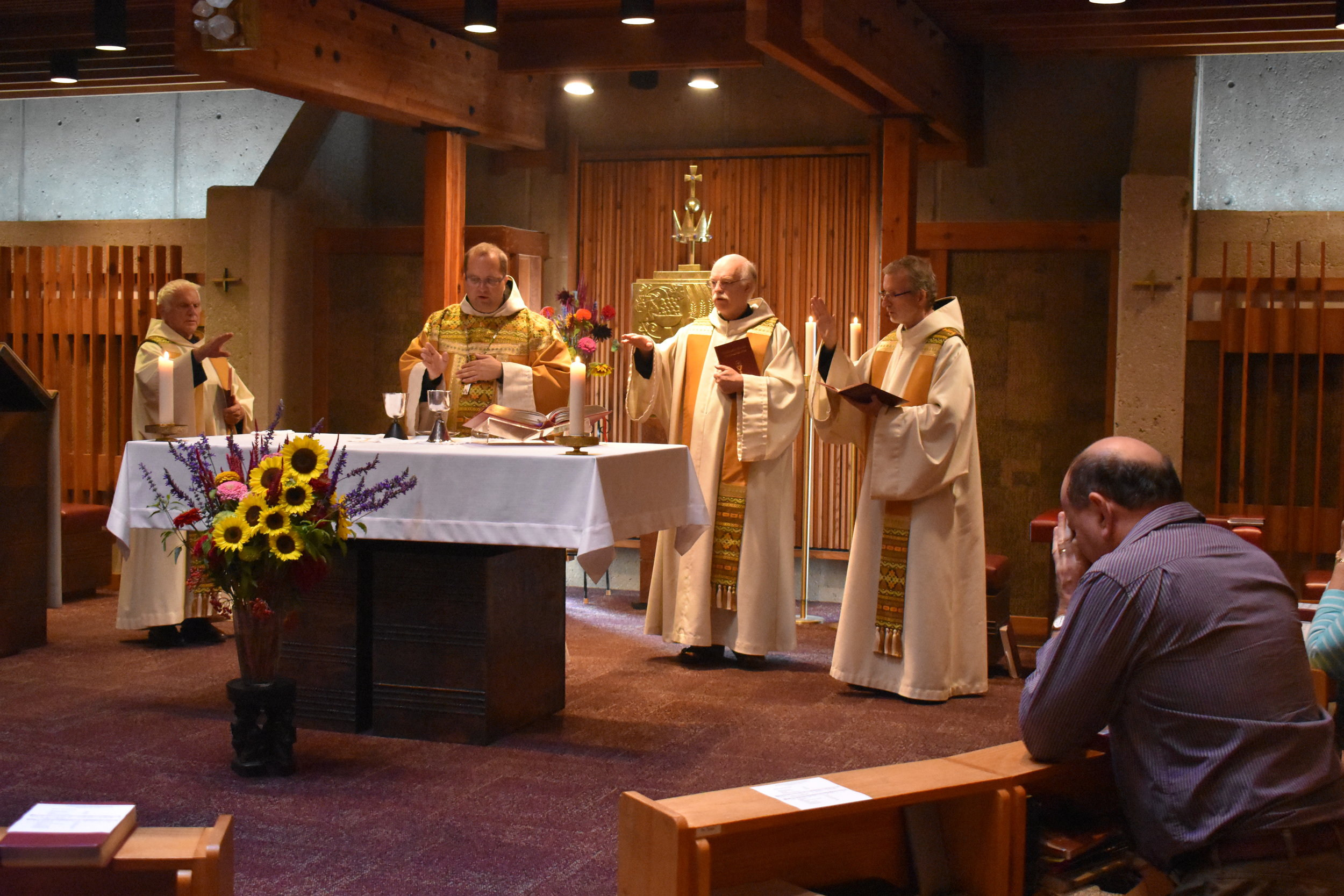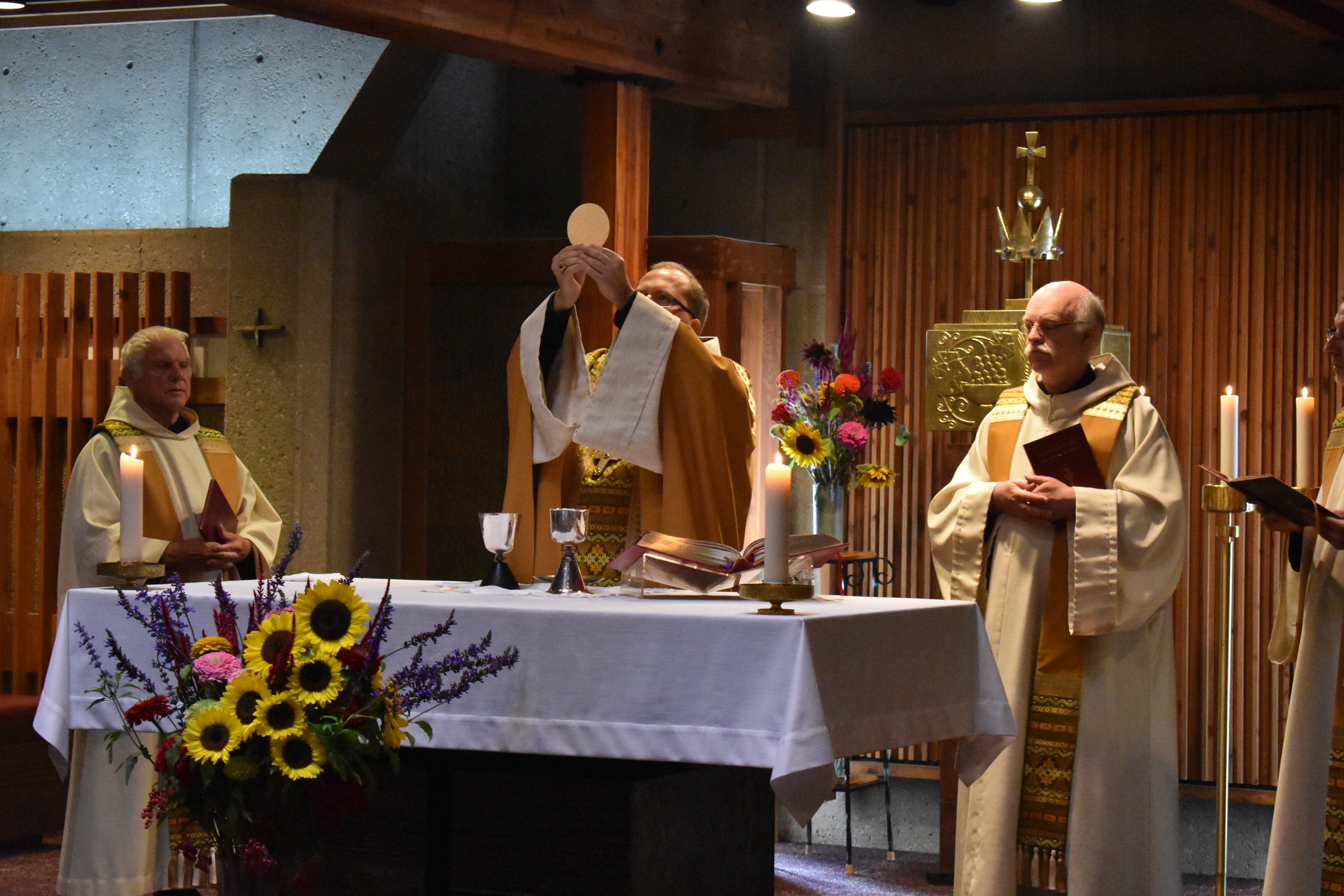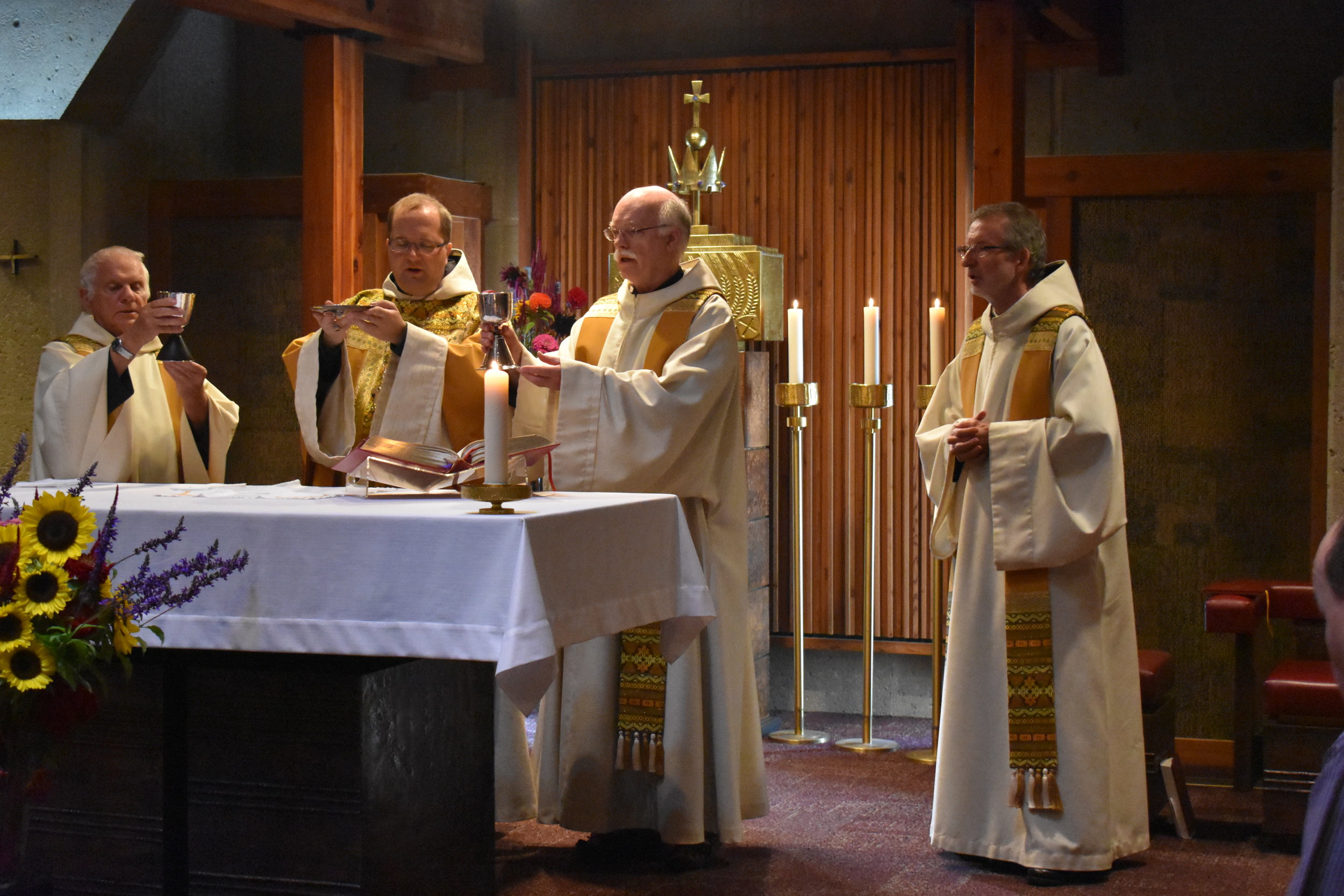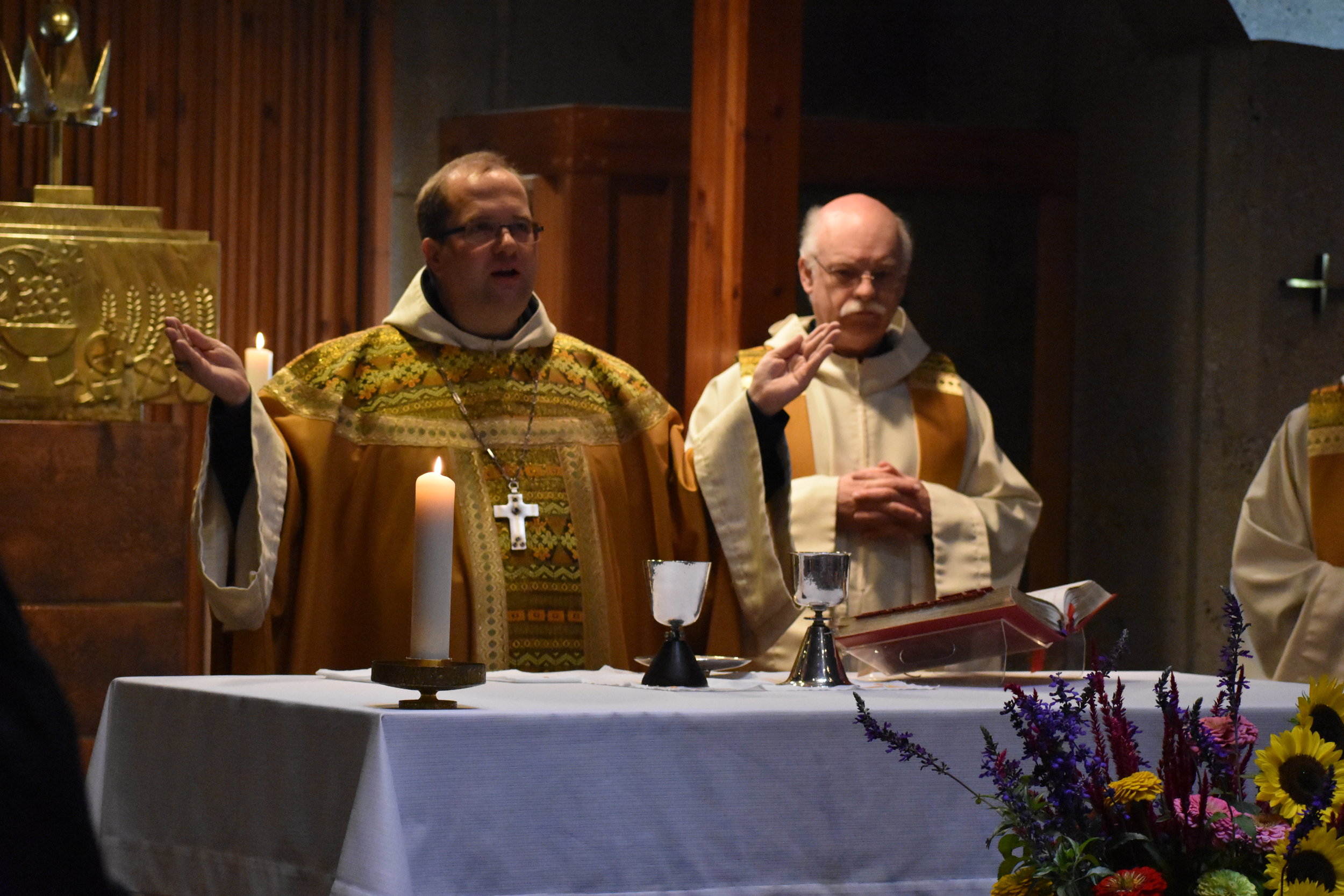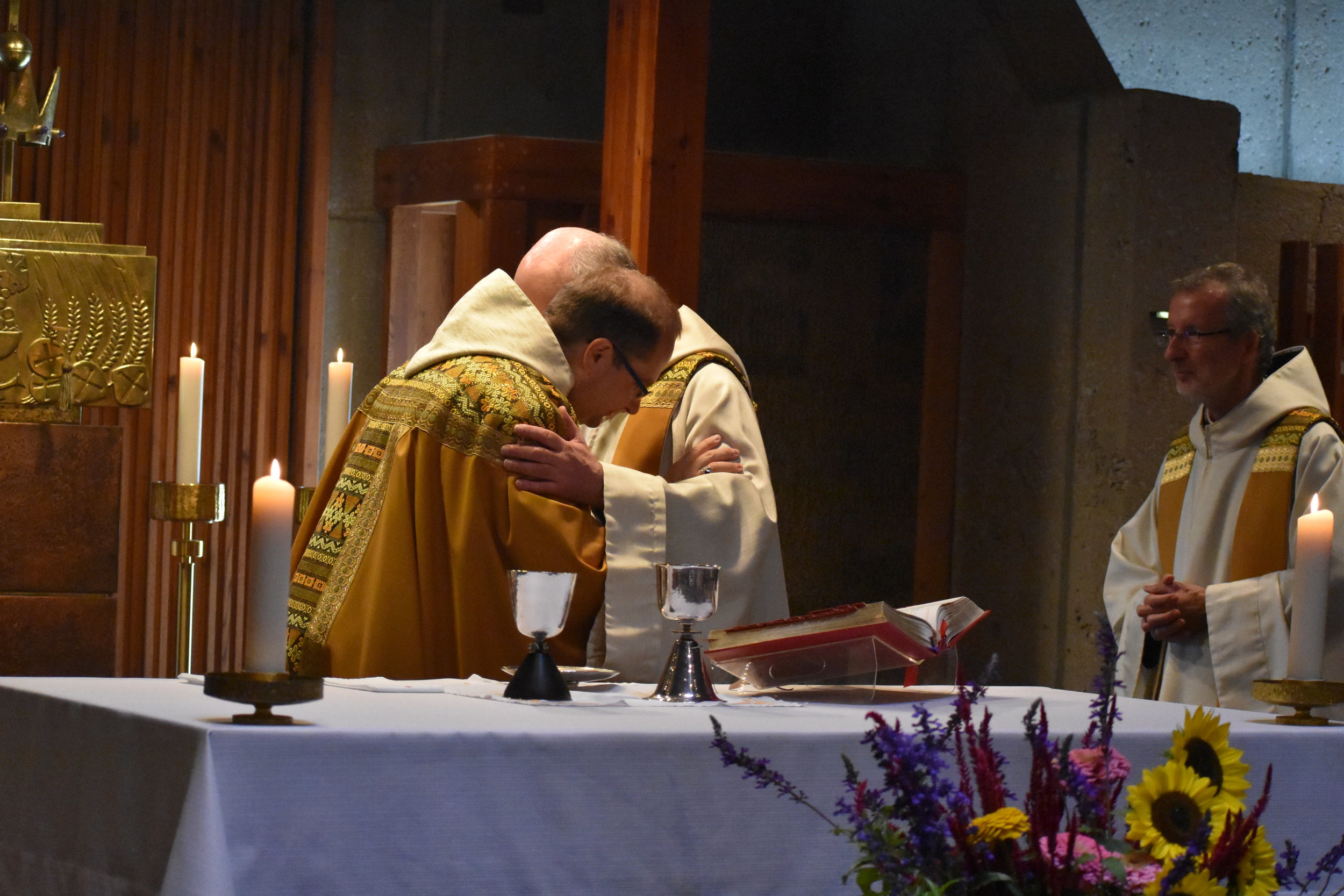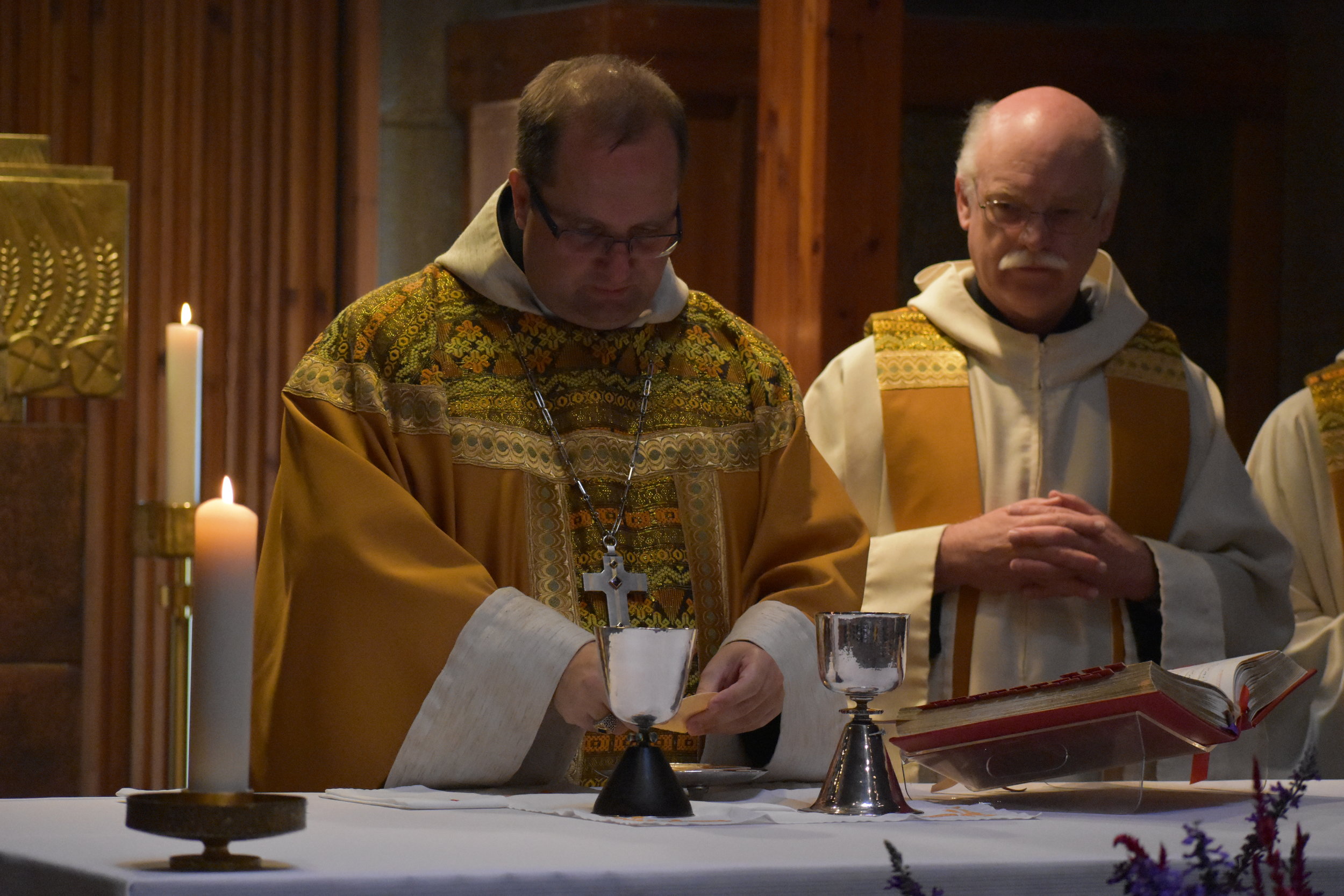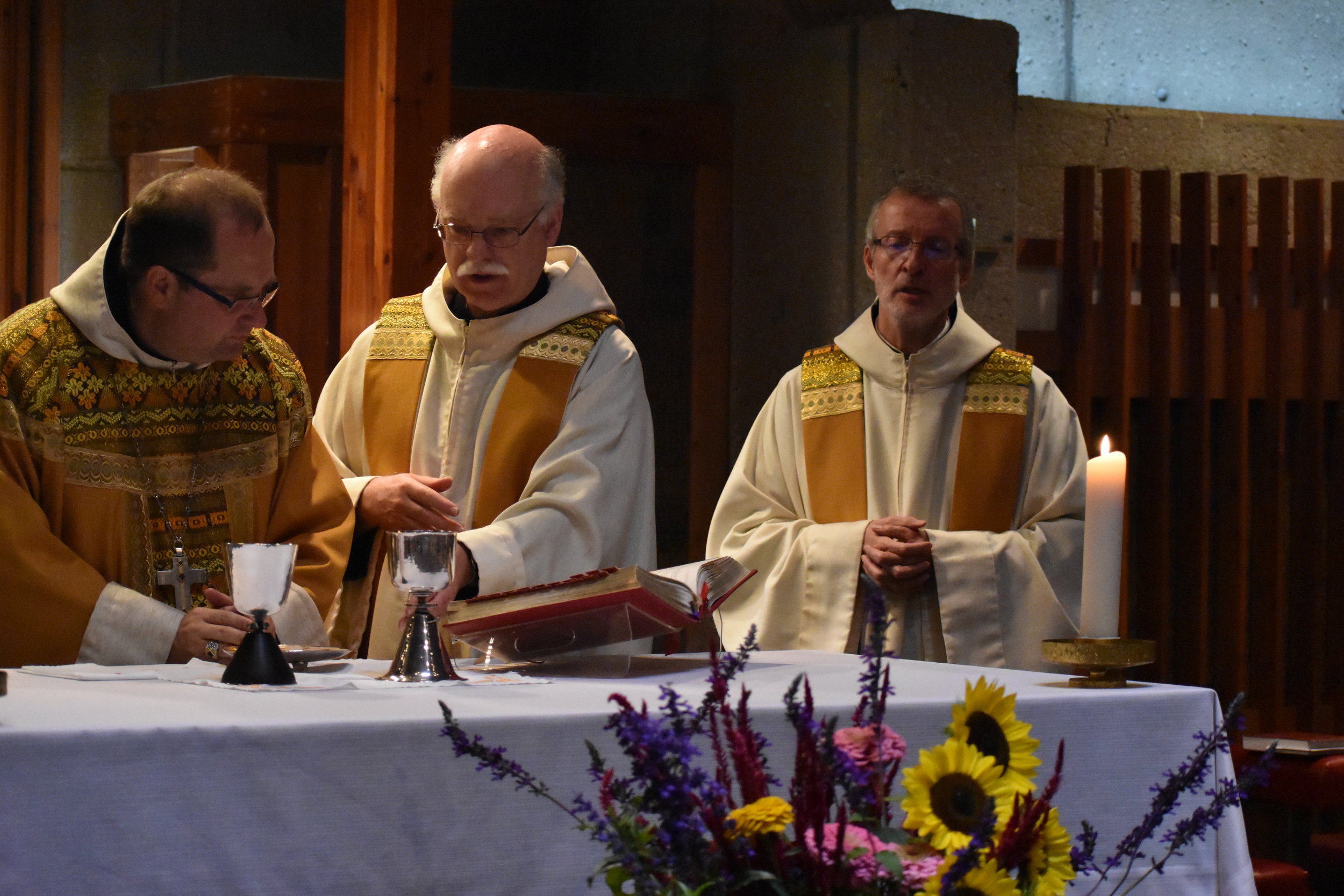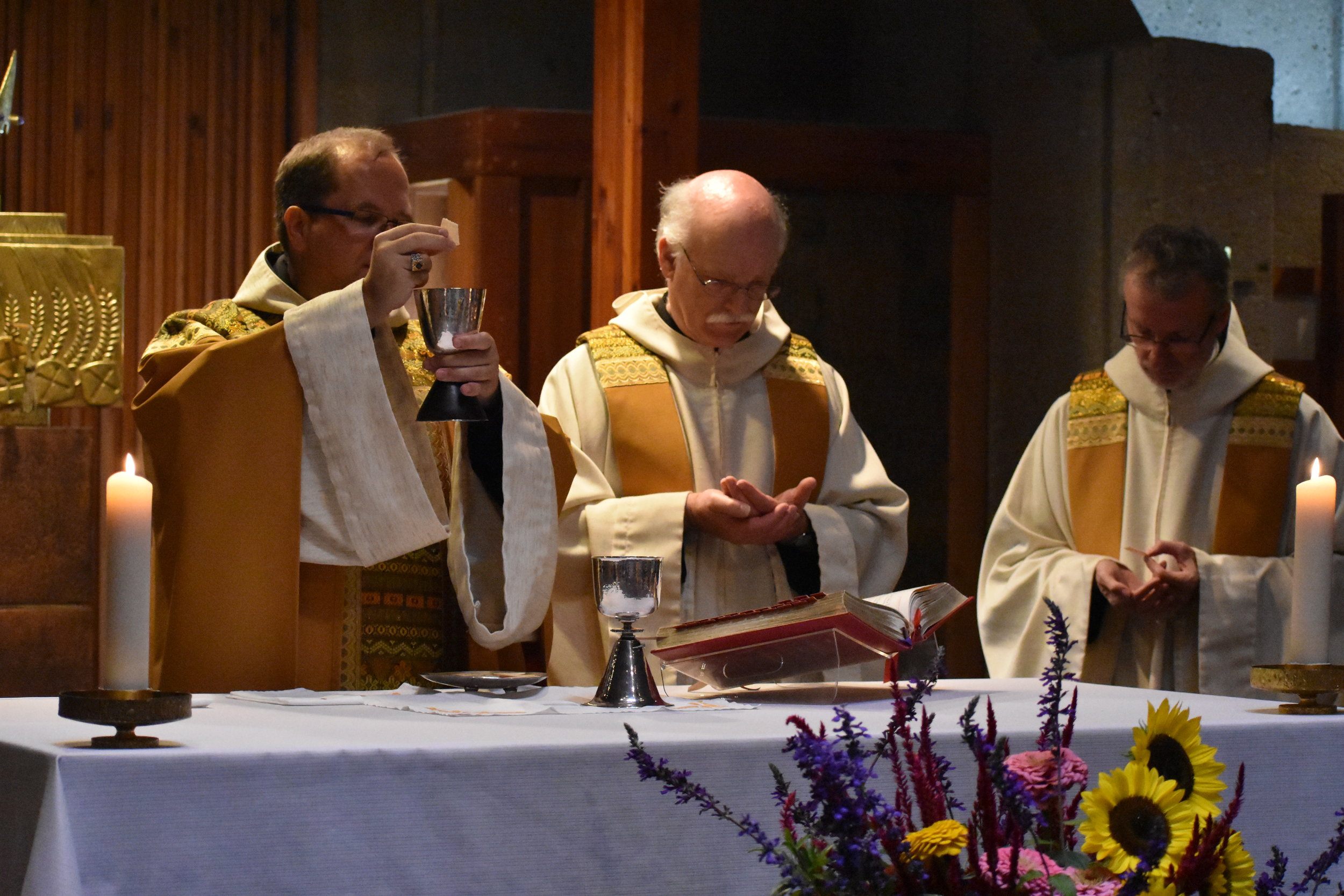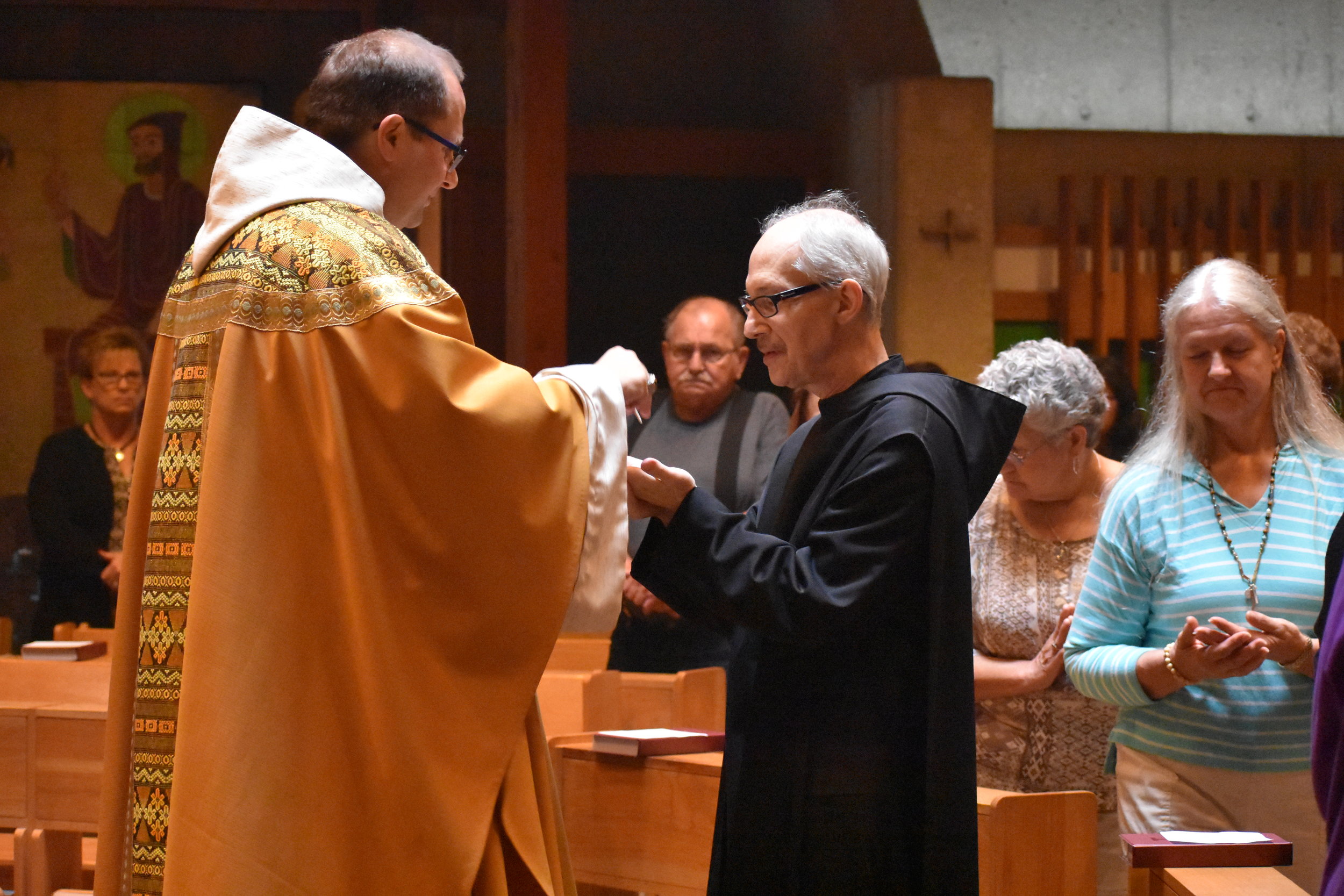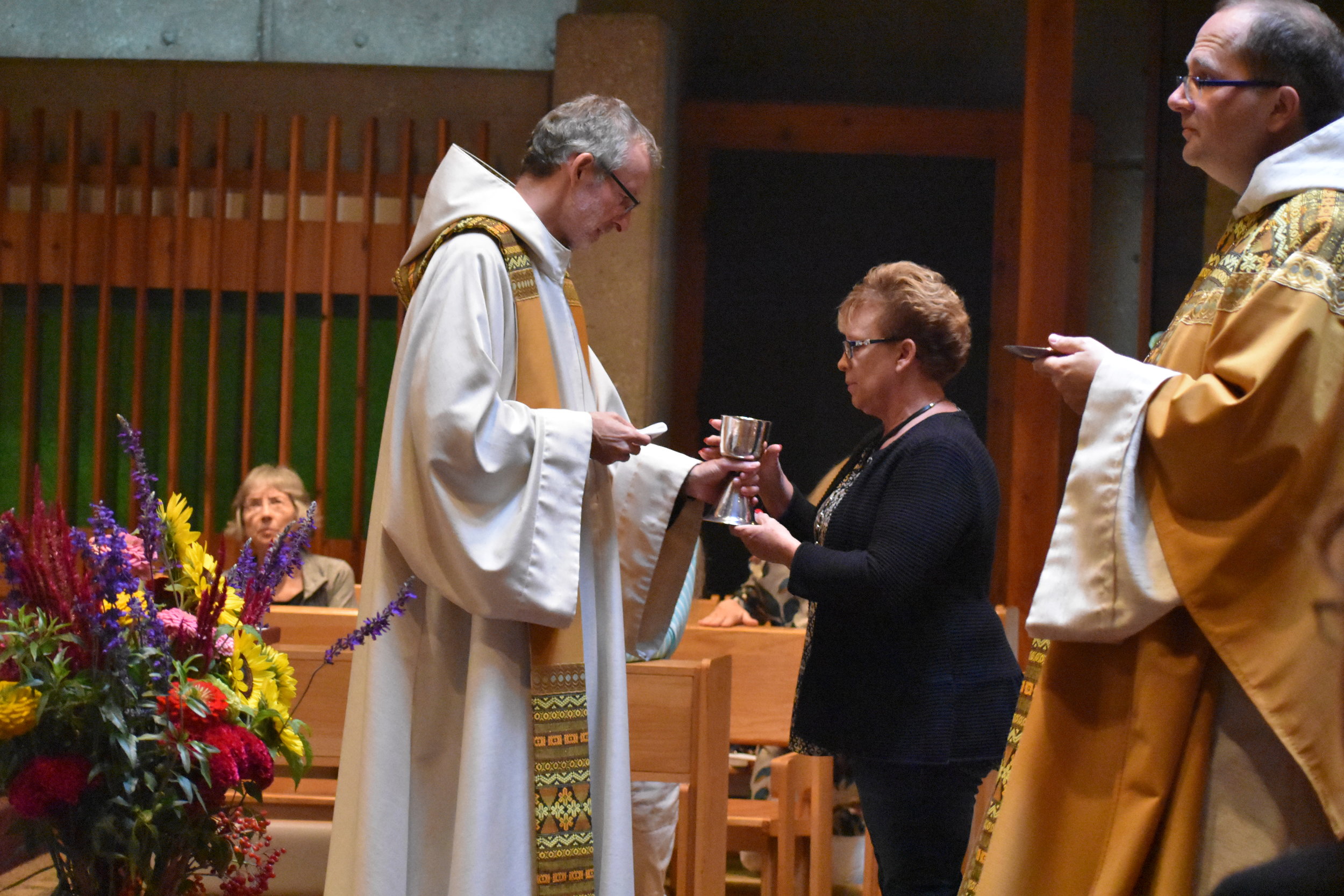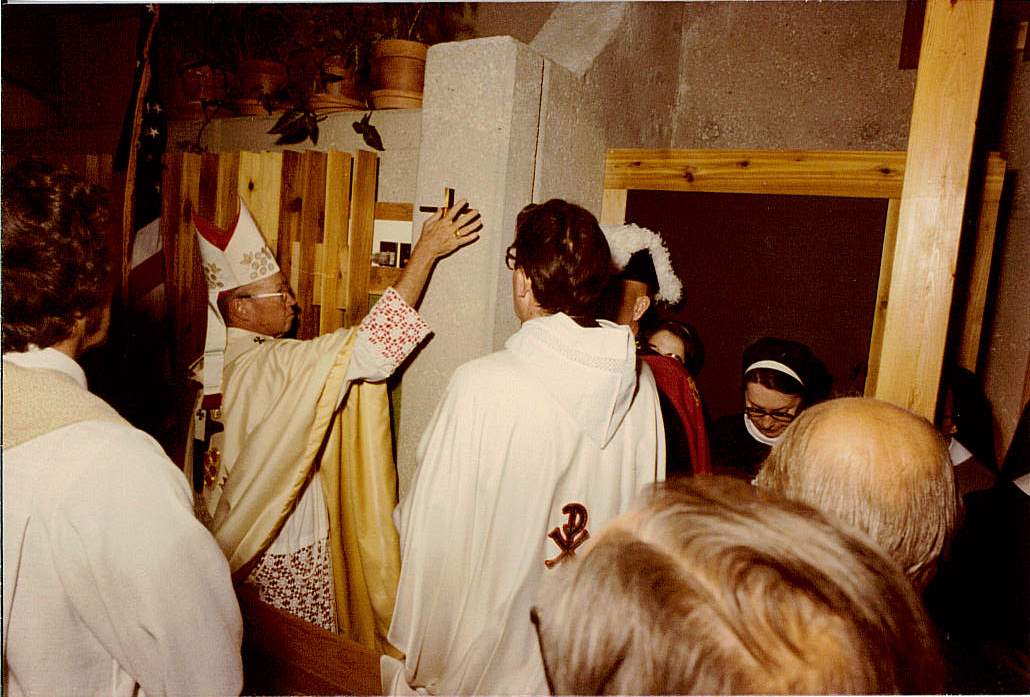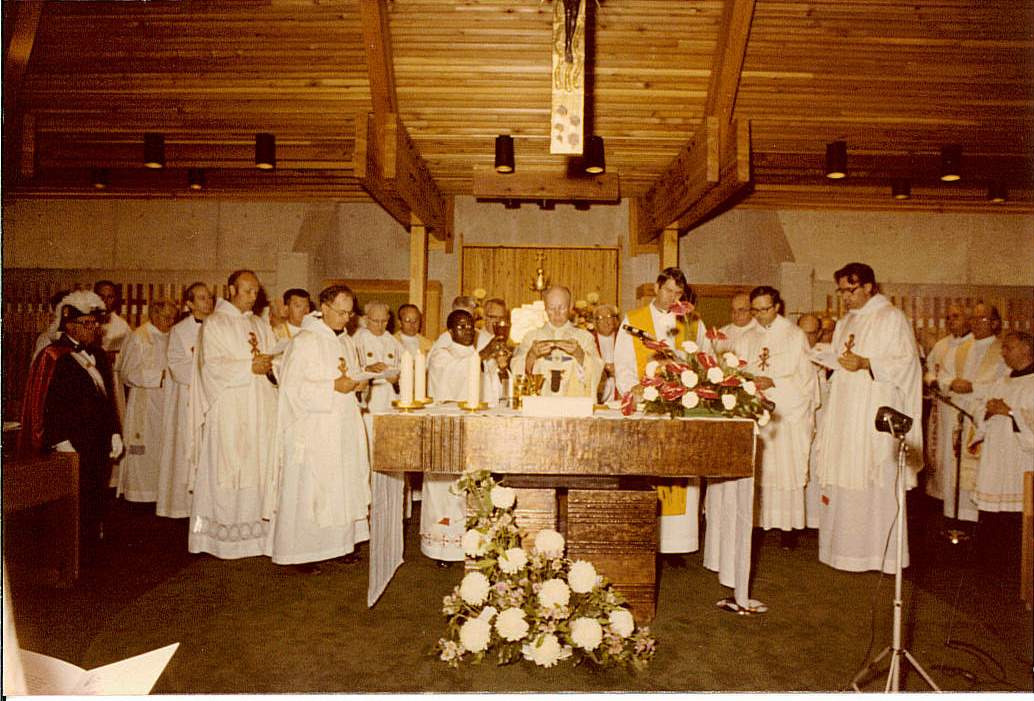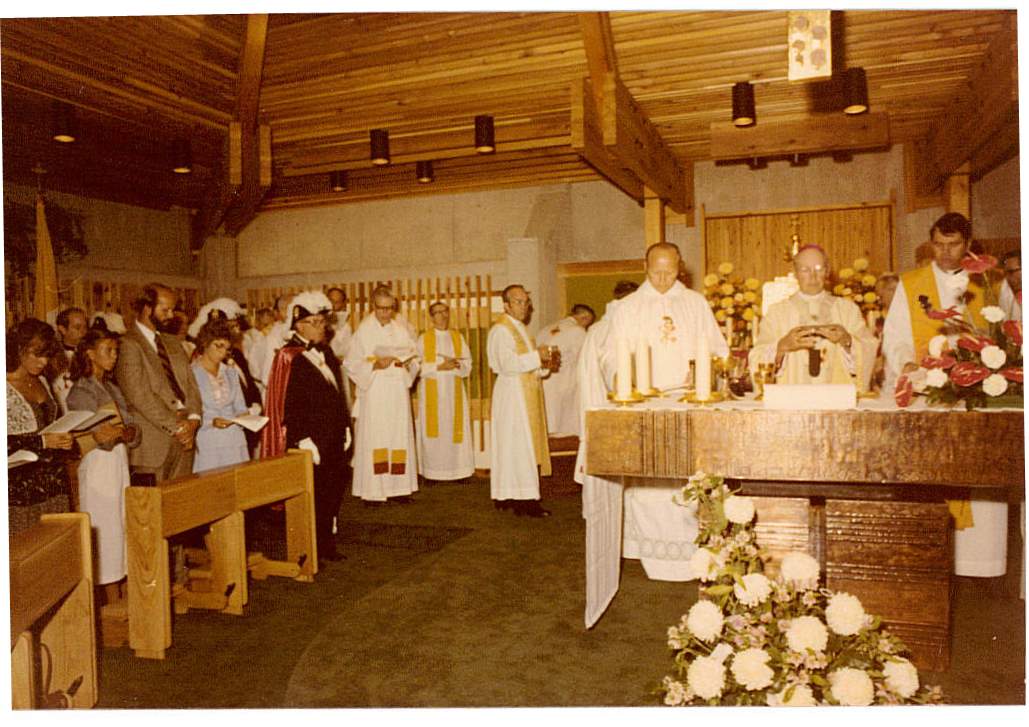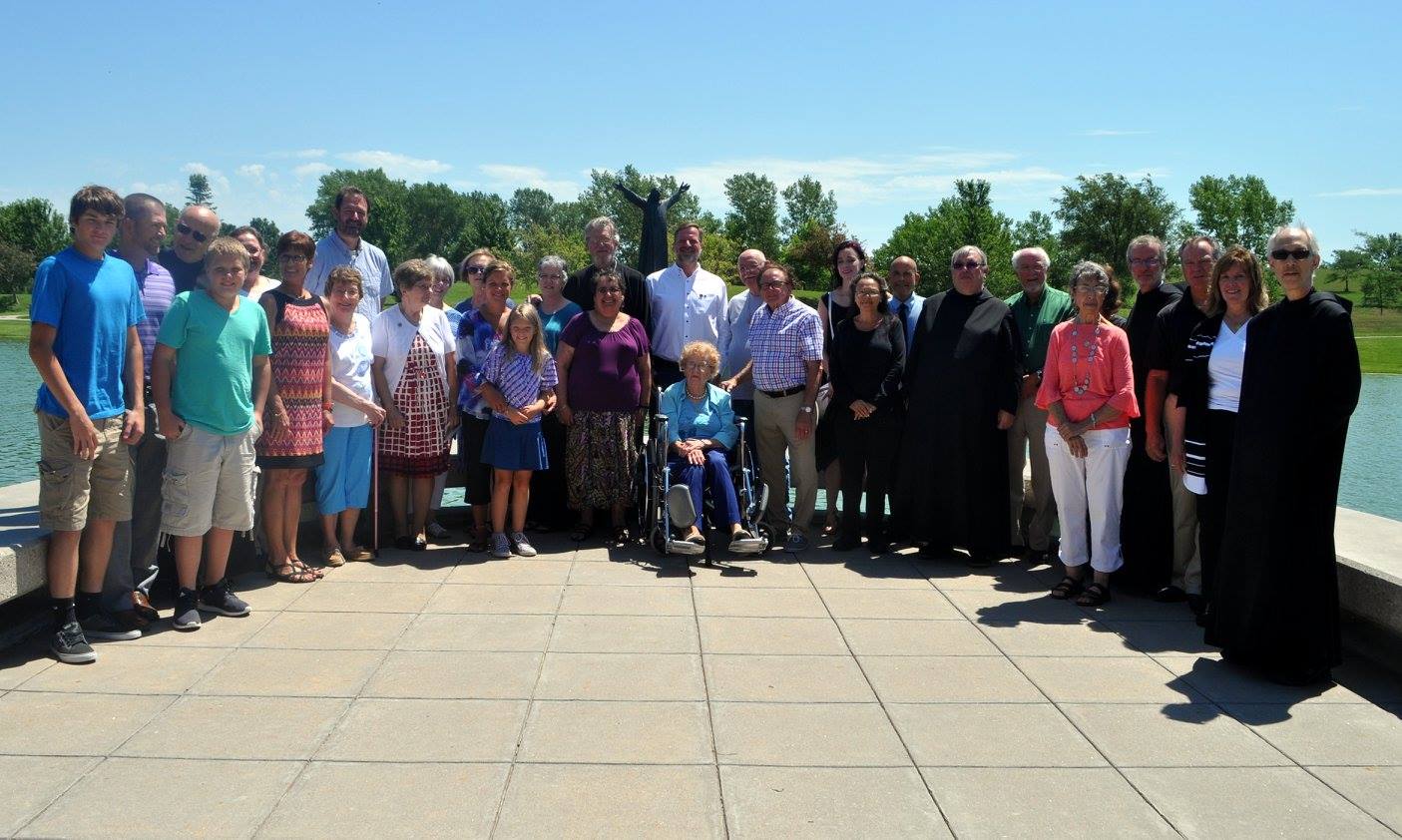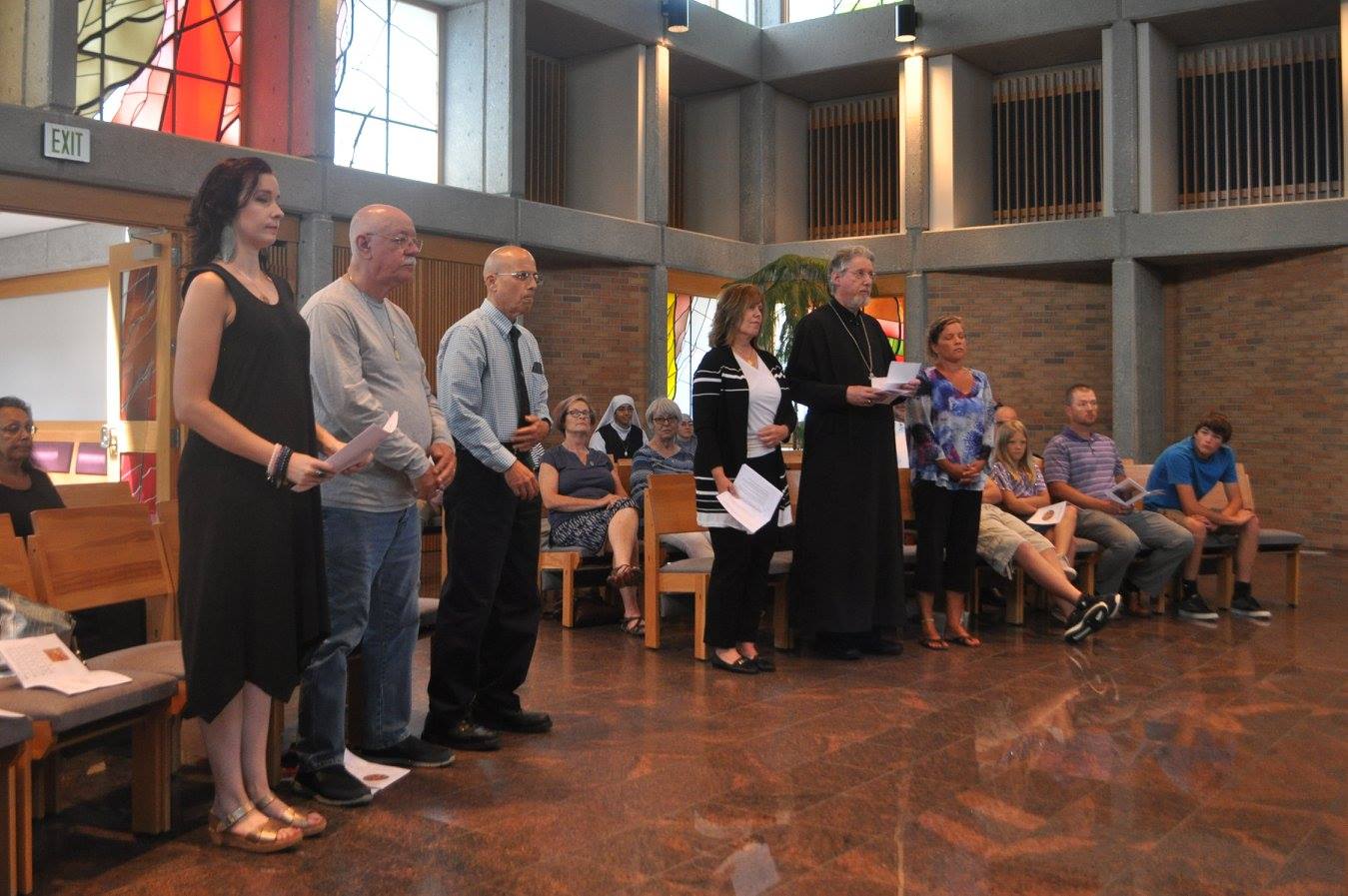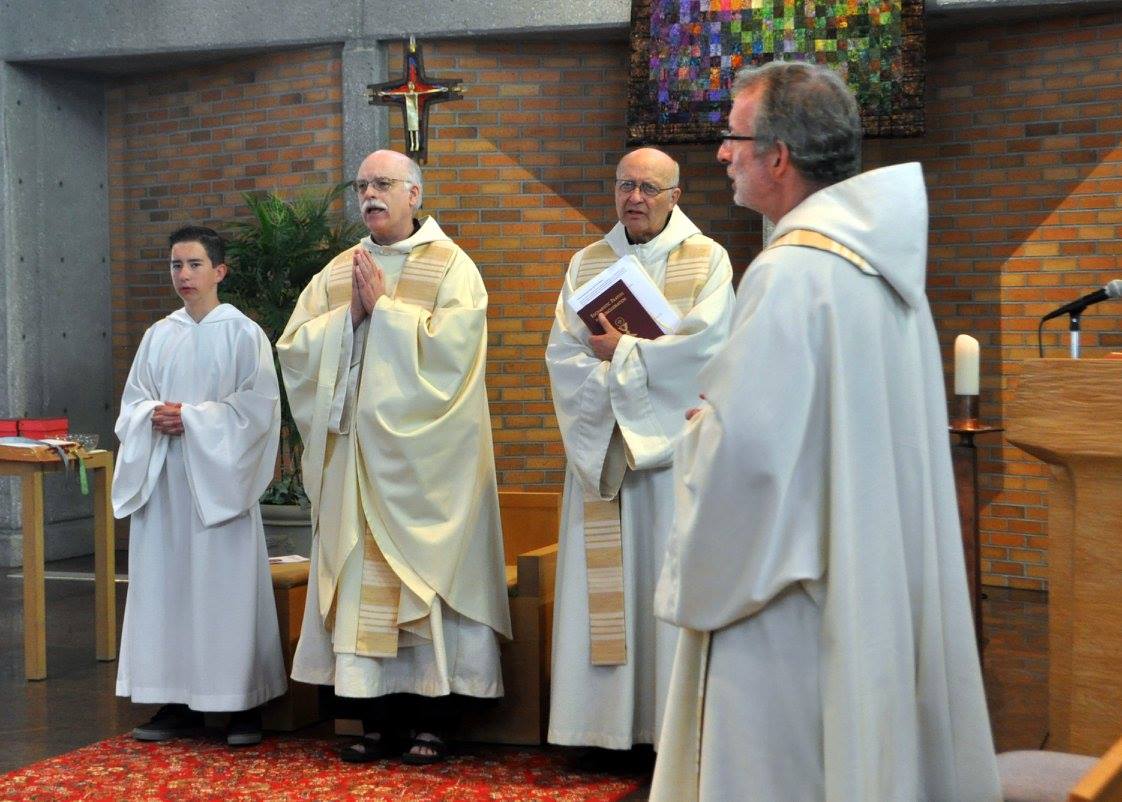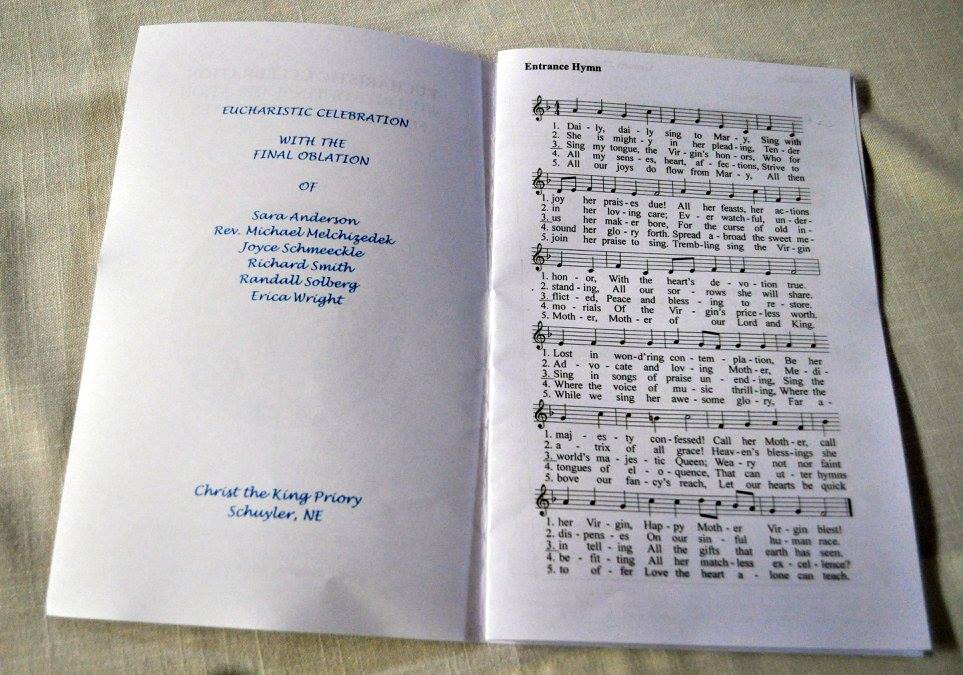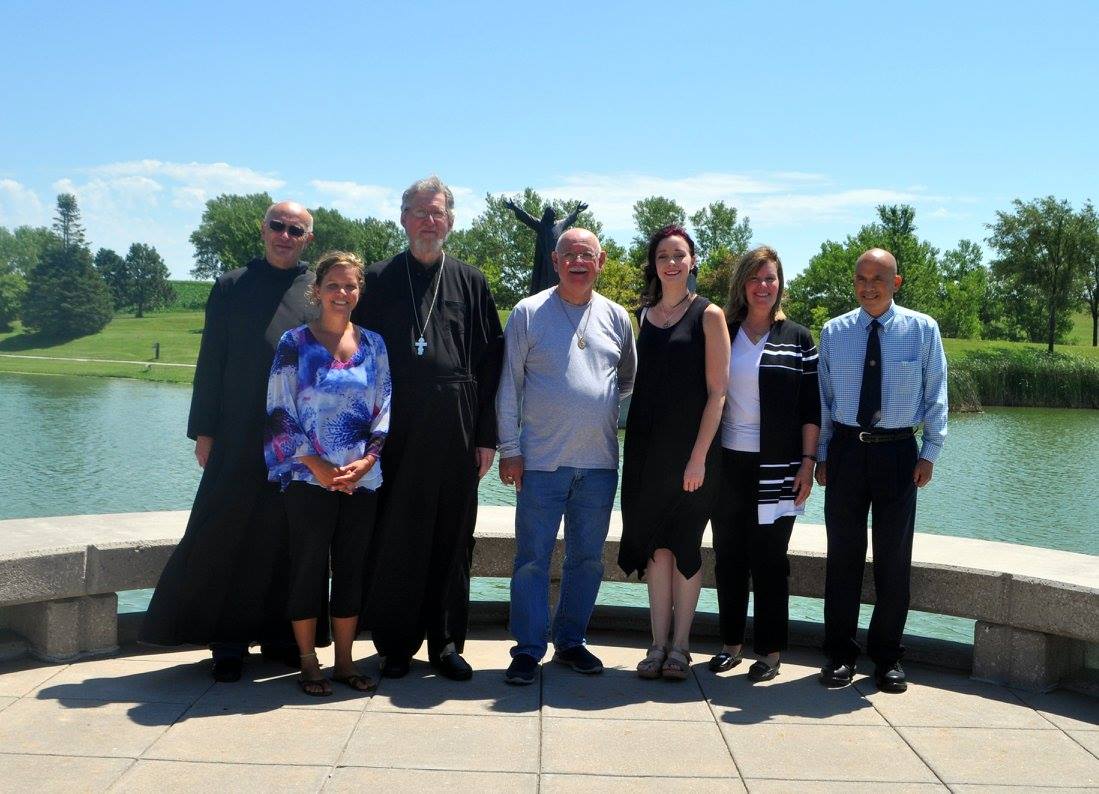“Come, Holy Spirit, pour out of the depth of the Trinity a ray of Your Light—that Light which enlightens our minds
and, at the same time, strengthens our wills to pursue the Light. …
You are the best consoler! What a charming Guest you make! How refreshingyour consolation! Soothing like a caress. In an instant You dissipate all doubt and sadness.
Come, Father of the poor, the poor in spirit, whom you love to fill with the fullness of God.
With this Prayer to the Holy Spirit, inspired by the Church’s Pentecost Sequence,
Trappist Father Thomas Keating begins his book, Open mind, Open Heart.
Prayer is the overarching theme in our Scripture readings today on the 7th Sunday of Easter, the Sunday before Pentecost. The gospel presents us with the first part of Jesus’ high-priestly prayer for his disciples.
As his ‘hour’ is approaching, which in John’s gospel is the time of his being lifted up on the cross as well as of his return to the Father, to heaven, he prays for those who believe in him, and who continue to be in ‘the world.’ The rest of Verse 11 in Chapter 17 of John’s Gospel that was cut off in the end from today’s gospel text says what Jesus is praying for:
“Holy Father, keep them in your name that you have given me
so that they may be one just as we are.”
Jesus prays for unity among his disciples, which has its root and origin in their unity with him and the Father.
In our first reading, we find the apostles gathered in the Upper Room waiting for the Holy Spirit, together with Mary, the women of Galilee and the brothers of Jesus. It’s significant that Luke mentions so exactly the people preparing in prayer for Pentecost. For when the Holy Spirit is coming down upon them with a mighty wind and tongues of fire, they, who had been so close to the earthly Jesus, will constitute the basic community of the church. Who are they?
The Eleven, later completed by Matthias to be 12 again, enjoy a unique importance because they were chosen by Jesus and were with him “right from the time when John was baptizing until the day when he was taken up from” them. However, there was experience, which complemented that of the apostles.
The women from Galilee, not the apostles, were the first to hear the message of the Resurrection by the empty tomb!
And Mary was the first in the gospel to hear the message about Jesus—at the Annunciation from the angel—and, together with Joseph, she was responsible for the formation of Jesus’ early life.
The apostles and the women and Mary bring the Gospel in its entirety into the beginning of the Church. Plus, there are the brothers (or cousins) of Jesus! One of them, James, will play a very important part in the early Church as head of the church in Jerusalem.
Being Jesus’ disciples includes also sharing in his sufferings. Suffering and rejoicing usually don’t go together. While today’s second reading doesn’t mention prayer directly, it’s understandable only from a stance of prayer. Peter says, we need to avoid suffering that is caused by our own wrongdoing, yes. If suffering, however, is caused by us imitating Christ we are blessed and can know that the Holy Spirit rests upon us and strengthens us.
Dear sisters and brothers in the Lord, Today and this coming week, we are invited to wait in prayer, together with Jesus’ first disciples, for the coming of the Holy Spirit.
Let’s pray during these days for that unity among Christians, which Jesus so desired. Let’s do so especially in this year of the Protestant Reformation’s 500th anniversary! We can work toward Christian unity through dialogue, through common prayer and through common action. But we also have to receive it as a gift for which we can open ourselves in prayer.
Let’s pray for the leaders of the Church, for Pope Francis, for clergy, religious, and laity, that we may lead people to the true knowledge of God and of his Son Jesus Christ.
Let’s especially also pray for women in the Church in gratitude for their unique gifts that they bring to it.
Let’s pray for all of us, for a new outpouring of the Holy Spirit that we may be strengthened to stand up for our faith, even in times of adversity and suffering, and that we may recognize what it means for us, for each one of us personally, to live out the message of Christ.
Come Holy Spirit, O most blessed Light divine, shine within these hearts of ours,
And our inmost being fill. In your sevenfold gift descend. Give us joy that never ends. Amen. Alleluia.
Fr. Thomas Leitner, OSB
